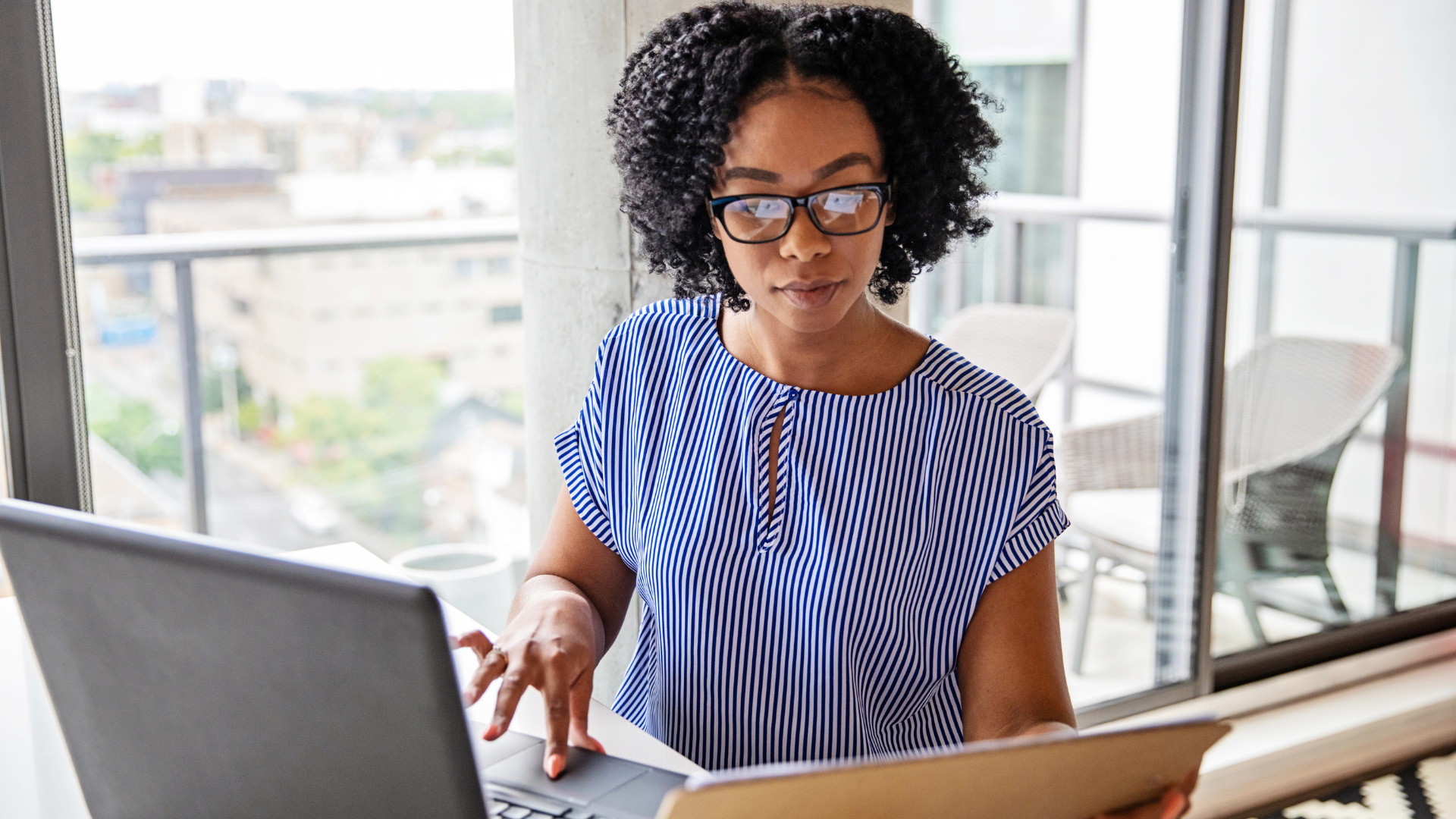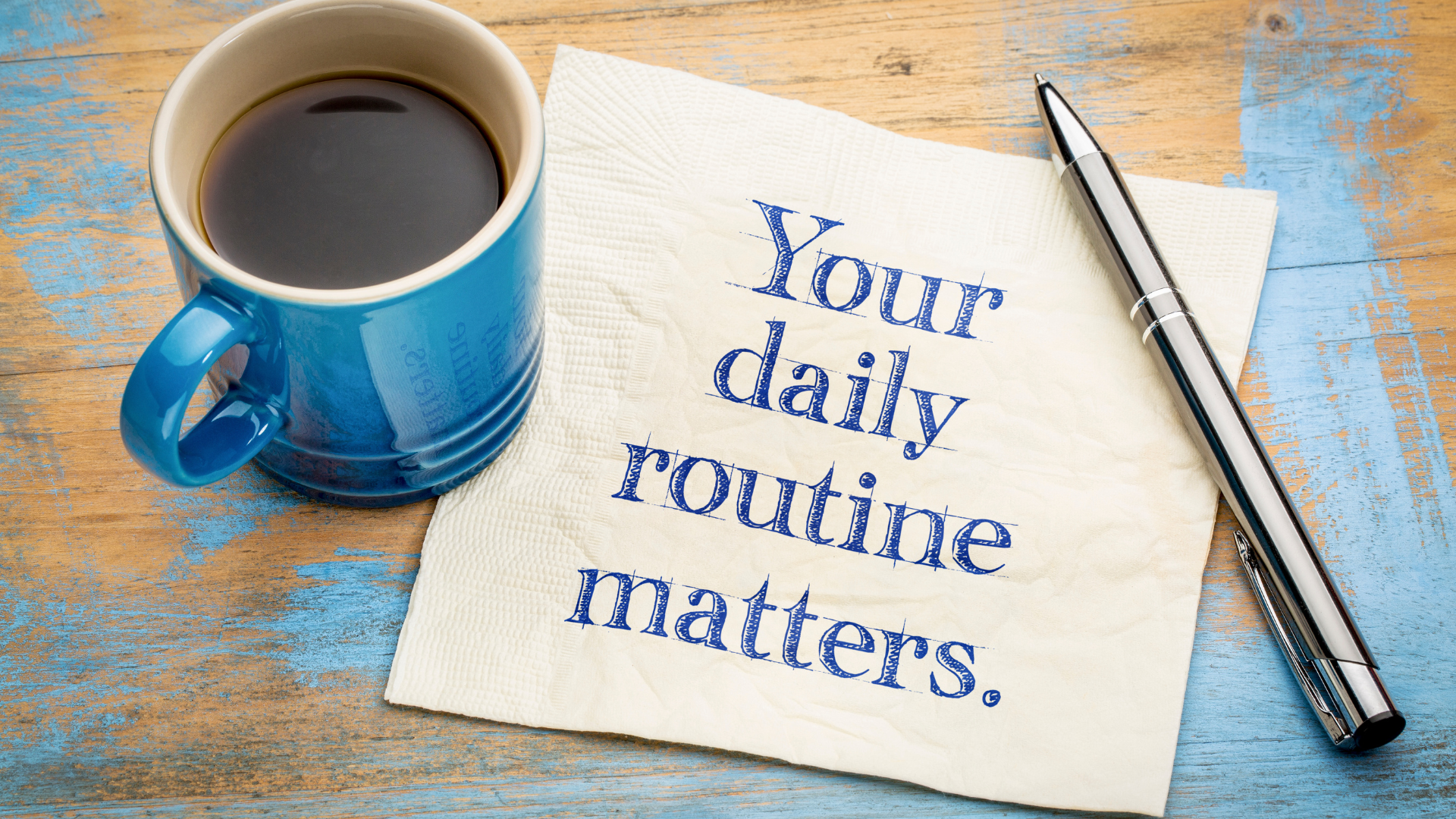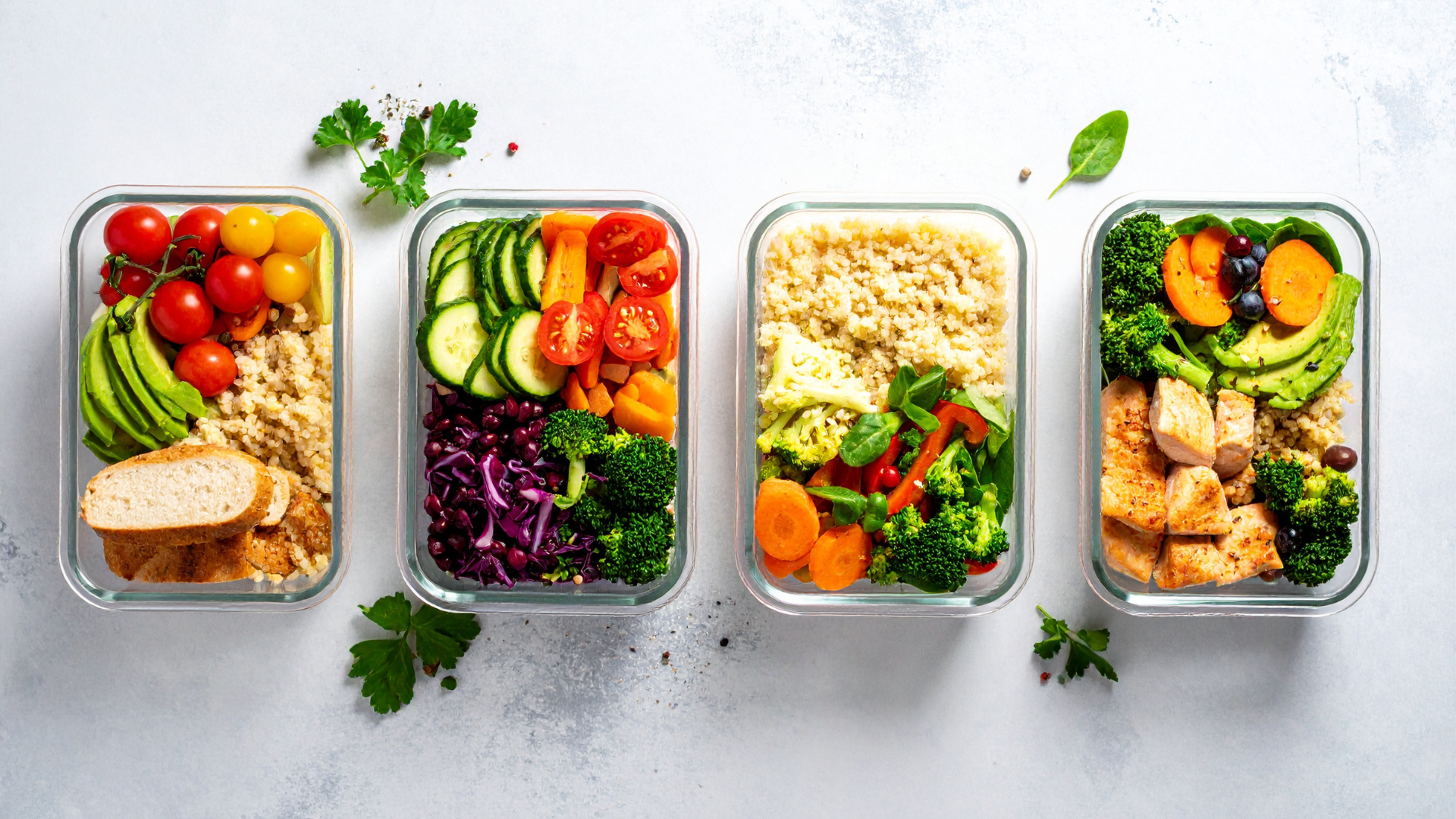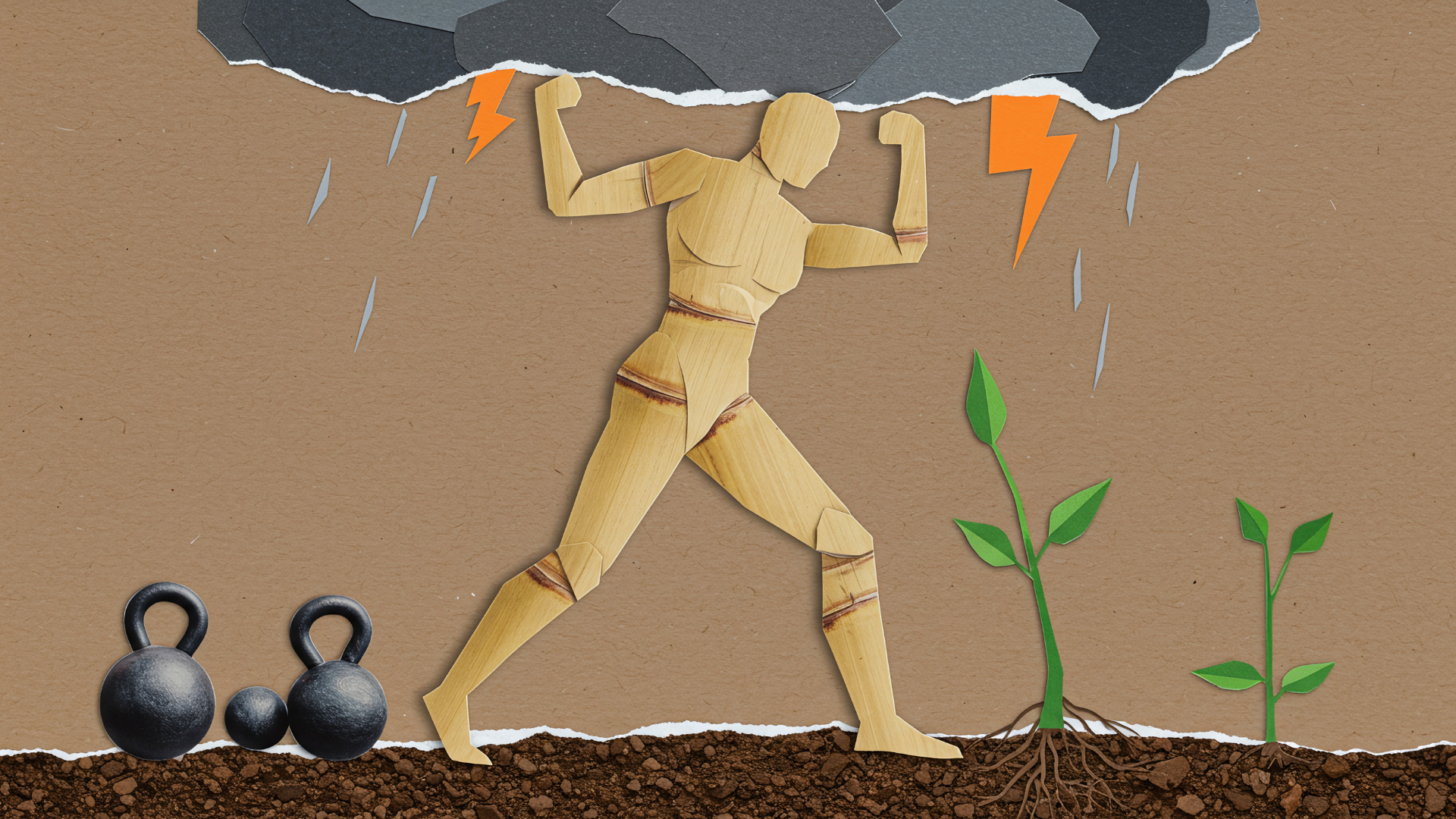
Many people think they need years of experience or special knowledge before starting a career in healthcare. They wonder, “What if I’ve never done this before?” or “What if I’m not qualified enough?” But here’s something important that often gets overlooked: Skills can be taught. Compassion comes from within. At Fordham Institute Inc. , we train students every day who start with little or no healthcare background. And time after time, we see the same thing—the students who succeed most aren’t the ones with experience. They’re the ones with heart. Because in caregiving, compassion matters more than anything else. Here’s why. 1. Kindness Builds Trust Clients and patients don’t just need assistance—they need comfort, patience, and understanding. A warm smile. A gentle tone. A listening ear. These small acts of kindness help people feel safe and respected. That kind of connection can’t be taught from a textbook—it comes naturally from who you are. 2. Empathy Makes You a Better Caregiver Empathy helps you understand what others are feeling. It allows you to slow down, notice details, and respond with care. When you genuinely care about someone’s well-being, your actions become more thoughtful and attentive. That’s what great caregivers do every day. 3. Training Teaches the Rest The technical skills? Those come with practice and instruction. During HHA or CNA training, you’ll learn: Safety procedures Hands-on care techniques Professional responsibilities Step-by-step skills You’re not expected to know everything on day one. That’s exactly what training is for. 4. Everyone Starts as a Beginner Every professional caregiver was once new. Everyone had a first day. Everyone had questions. The difference isn’t experience—it’s the decision to start. Once you take that first step, confidence grows quickly. 5. Heart Creates Purpose Healthcare isn’t just about tasks—it’s about helping people live with dignity and comfort. When you lead with compassion, your work feels meaningful. And meaningful work brings pride, fulfillment, and motivation that lasts. You Might Already Have What It Takes If you’re patient, caring, and willing to learn, you already have the most important qualities needed in healthcare. Everything else can be taught. 📞 Call 718-480-1804 to learn more about HHA and CNA training Experience can be learned. Skills can be practiced. But a caring heart is what truly makes a difference. And you might already have it. 💙

Winter can be beautiful—but it can also feel heavy. Shorter days, colder weather, and busy schedules can make it harder to stay motivated and focused. It’s normal to feel a little slower or more tired this time of year. For Home Health Aides (HHAs), Certified Nursing Assistants (CNAs), and healthcare students, though, life doesn’t pause when the temperature drops. Classes continue. Responsibilities continue. Goals still matter. At Fordham Institute Inc. , we remind our students that productivity doesn’t mean pushing yourself harder—it means creating small habits that help you stay steady and consistent. Here are simple ways to stay focused and energized, even during the colder months. 1. Start Your Morning With Intention Cold mornings make it tempting to stay in bed longer. A simple morning routine can help you wake up both your body and mind. Try: Turning on bright lights right away Drinking a warm beverage Stretching or moving for a few minutes Planning your top task for the day Starting with intention helps you feel more in control. 2. Break Tasks Into Smaller Pieces Big tasks feel heavier in winter. Instead of tackling everything at once, break your work into smaller steps. For example: Study for 20 minutes Review one chapter Complete one assignment section Small wins build momentum and make progress feel easier. 3. Stay Physically Active Movement helps fight fatigue and improves your mood—even light activity makes a difference. You don’t need a long workout. Try: A short walk Gentle stretching Moving around between study sessions Physical movement boosts energy and helps you stay alert. 4. Fuel Your Body Properly Cold weather often leads to skipped meals or comfort foods that leave you feeling sluggish. Instead, aim for: Balanced meals Healthy snacks Plenty of water Warm, nourishing foods Good nutrition keeps your mind sharp and your energy steady. 5. Keep a Consistent Routine Routine creates stability when everything else feels slow. Waking up, studying, and resting at similar times each day helps your body stay balanced. Consistency reduces stress and makes it easier to stay productive without overthinking. 6. Be Patient With Yourself Some days will feel slower than others—and that’s okay. Progress doesn’t have to be fast to be meaningful. Showing up and doing your best is enough. Give yourself grace while you keep moving forward. Stay Steady, Stay Focused Winter may slow the pace, but it doesn’t stop your progress. Small daily habits keep you moving closer to your goals—even when motivation feels low. 📞 Call 718-480-1804 to learn more about HHA and CNA training You don’t have to rush—just keep going. Consistency beats cold weather every time. ❄️💙

Life can feel unpredictable sometimes. Expenses change, schedules shift, and job security isn’t always guaranteed. During uncertain times, one thing becomes more important than ever: stability . That’s one of the reasons so many people choose healthcare. While many industries slow down or fluctuate, healthcare remains essential every single day. Families always need care. Patients always need support. Communities always need trained professionals. At Fordham Institute Inc. , we’ve seen firsthand how healthcare training can open the door to reliable, meaningful, and steady employment. Here’s why a healthcare career offers stability when you need it most. 1. Healthcare Is Always in Demand Illness, recovery, and daily care needs don’t depend on the season or the economy. Care is needed year-round. That means: Consistent job opportunities Ongoing demand for HHAs and CNAs Less worry about “slow seasons” Healthcare professionals are always needed—and always valued. 2. Short-Term Training, Faster Results Unlike careers that require years of schooling, healthcare training programs like HHA and CNA allow you to get started quickly. In a short time, you can: Learn practical skills Complete training Apply for jobs Begin earning income Starting sooner means working sooner. 3. Flexible Work Options Healthcare offers flexibility that many other fields don’t. Depending on your goals, you may find: Day or evening shifts Full-time or part-time work Opportunities in homes, facilities, or agencies This flexibility makes it easier to balance work with family and personal life. 4. Skills That Travel With You Healthcare skills are valuable everywhere. Once you’re trained, those skills stay with you. Whether you move, change workplaces, or explore new opportunities, your training continues to open doors. That kind of security brings confidence and peace of mind. 5. Work That Feels Meaningful Stability isn’t just about income—it’s also about purpose. Healthcare careers allow you to: Help others daily Make a real difference Feel proud of the work you do Knowing your job truly matters adds a different kind of fulfillment that many careers can’t offer. Build a Career You Can Count On If you’re looking for something steady, reliable, and meaningful, healthcare may be the path you’ve been searching for. Investing in training today can create stability for years to come. 📞 Call 718-480-1804 to learn more about HHA and CNA training When life feels uncertain, a healthcare career offers something powerful—security, purpose, and a future you can rely on. 💙

When people think about success, they often imagine big moments—graduation day, landing a job, or starting a new career. But what many don’t realize is that those big milestones are built on small, everyday habits. Success doesn’t usually happen overnight. It happens little by little. At Fordham Institute Inc. , we see it all the time. The students who succeed most aren’t necessarily the fastest or the most experienced—they’re the ones who stay consistent. They show up, stay disciplined, and keep going, even on ordinary days. Here’s how small daily habits can lead to big career results. 1. Show Up Consistently The simplest habit is also the most powerful: showing up. Attend class regularly Be on time Stay present and focused Consistency builds confidence, knowledge, and trust. Just being there every day puts you ahead. 2. Study a Little Each Day You don’t need hours of studying to improve. Short, steady review sessions make a big difference. Try: Reviewing notes for 15–20 minutes Practicing one skill at a time Asking questions when unsure Small daily learning adds up faster than last-minute cramming. 3. Prepare the Night Before Mornings feel easier when you plan ahead. Simple habits like: Packing your bag Laying out your uniform Checking your schedule reduce stress and help you start the day calmly and confidently. Preparation creates peace of mind. 4. Take Care of Your Health Your body is your most important tool in healthcare. Make it a habit to: Get enough sleep Eat balanced meals Stay hydrated Take short breaks when needed When you feel good physically, everything else becomes easier. 5. Keep a Positive, Patient Mindset Progress takes time. Some days will feel easier than others. Stay patient with yourself and remember why you started. Small steps forward are still steps forward. Success grows from steady effort—not perfection. Big Results Start Small The little things you do each day may not seem important—but over weeks and months, they create powerful change. One class. One skill. One habit at a time. That’s how careers are built. 📞 Call 718-480-1804 to learn more about HHA and CNA training Small daily habits create big futures. Keep showing up—your success is closer than you think. 💙

Starting something new can feel exciting—and a little nerve-wracking at the same time. If you’ve been thinking about enrolling in a Home Health Aide (HHA) or Certified Nursing Assistant (CNA) program, you might be wondering: “What will class be like?” “Will it be hard?” “Do I need experience?” “Am I going to feel prepared?” These questions are completely normal. At Fordham Institute Inc. , we work with many first-time healthcare students, and one thing we always say is this: you don’t need experience to start—you just need the willingness to learn. We guide you step-by-step from the very beginning. Here’s what you can expect during your first weeks of training. 1. A Supportive, Welcoming Environment Your first days are about getting comfortable. You’ll meet: Your instructors Your classmates Your learning space Our goal is to help you feel supported, not overwhelmed. Many students quickly realize they’re not alone—everyone is learning together. 2. Step-by-Step Learning You won’t be expected to know everything right away. Training starts with the basics and builds gradually: Understanding caregiving responsibilities Learning safety procedures Practicing essential skills Gaining confidence little by little Each lesson prepares you for the next one. 3. Hands-On Practice Healthcare is best learned by doing. That’s why training includes hands-on learning, not just reading or listening. You’ll practice real-life skills so you feel comfortable and capable—not just informed. This helps you feel ready for real work situations. 4. Building Confidence Each Day It’s normal to feel unsure at first. But something amazing happens during training—confidence grows quickly. Skills that once felt new begin to feel natural. Tasks that seemed intimidating become manageable. With practice and guidance, you’ll start thinking, “I can really do this.” 5. Preparation for Employment Training isn’t just about passing a class—it’s about preparing for a career. You’ll gain: Practical knowledge Professional habits Real-world readiness Plus, Fordham Institute Inc. offers job placement assistance , connecting students with agencies and employers that are hiring. Your First Step Toward a New Career Starting something new always feels uncertain at first—but every professional was once a beginner. The key is simply getting started. If you’re ready to take that first step, we’re here to guide you every step of the way. 📞 Call 718-480-1804 to learn more about HHA and CNA training You don’t have to be experienced to begin. You just have to begin. 💙

Training for a healthcare career is rewarding—but it can also be demanding. Between classes, studying, work, family responsibilities, and daily life, it’s easy to feel tired or overwhelmed. Many Home Health Aides (HHAs), Certified Nursing Assistants (CNAs), and students spend so much time caring for others that they forget to care for themselves. But here’s the truth: you can’t pour from an empty cup. At Fordham Institute Inc. , we remind our students that taking care of yourself isn’t selfish—it’s necessary. When you protect your energy and health, you perform better, think clearly, and show up stronger for the people who depend on you. Here are simple self-care habits that can help you avoid burnout while staying focused on your goals. 1. Protect Your Sleep Sleep is the foundation of everything—your mood, focus, and energy. Try to: Go to bed at a consistent time Limit phone or screen time before sleep Give your body enough rest to recharge A well-rested mind learns faster and handles stress better. 2. Keep Meals Simple and Nourishing Busy days often lead to skipped meals or fast food, which can leave you feeling drained. Instead, aim for: Easy, balanced meals Healthy snacks during long days Drinking enough water Fueling your body properly keeps your energy steady throughout the day. 3. Take Short Breaks to Reset You don’t need long vacations to recharge. Even small breaks help. Try: A short walk Stretching Deep breathing A few quiet minutes to yourself These small resets reduce stress and help you stay mentally sharp. 4. Stay Organized to Reduce Overwhelm Clutter and last-minute rushing increase stress. Simple organization can make life feel lighter. Prepare by: Packing your bag the night before Writing down your schedule Planning tasks ahead of time Preparation creates peace of mind. 5. Give Yourself Grace Not every day will feel perfect—and that’s okay. Some days you’ll feel tired or less productive. Be kind to yourself. Progress doesn’t require perfection. It requires consistency. Treat yourself with the same patience and compassion you give others. Take Care of You, Too Healthcare is about caring—but that care includes yourself. Protecting your well-being helps you become a stronger student, caregiver, and professional. When you feel balanced, everything else becomes easier. 📞 Call 718-480-1804 to learn more about HHA and CNA training Taking care of yourself isn’t a break from your goals—it’s how you reach them. 💙

When people think about becoming a Home Health Aide (HHA) or Certified Nursing Assistant (CNA), they often focus on the technical skills—learning procedures, assisting clients, or understanding healthcare practices. But caregiving teaches you something even bigger. It builds life skills that stay with you long after training ends. At Fordham Institute Inc. , we see it all the time. Students don’t just grow professionally—they grow personally. The habits and strengths developed during healthcare training carry over into everyday life, making you more confident, capable, and resilient. Here’s how caregiving helps you beyond the classroom. 1. Stronger Time Management Balancing classes, responsibilities, and daily life teaches you how to manage your time wisely. You learn to: Plan your day Stay organized Prioritize what matters Meet deadlines These skills help not only at work—but at home, with family, and in every area of life. 2. Better Communication Skills Caregiving requires clear, compassionate communication. You learn how to: Listen carefully Explain things simply Speak with patience and respect Support people emotionally Strong communication builds better relationships everywhere—not just with clients. 3. Patience and Emotional Strength Healthcare teaches you how to stay calm under pressure. You develop patience, understanding, and empathy—especially during challenging moments. These qualities help you: Handle stress better Stay level-headed Solve problems calmly Emotional strength is a skill you carry for life. 4. Confidence in Yourself Each new skill you learn builds confidence. The more you practice, the more capable you feel. Over time, you begin to think: “I can handle this.” “I know what I’m doing.” “I’m prepared.” That confidence spreads into every part of your life. 5. A Strong Sense of Purpose Few careers allow you to make a real difference every day. Caregiving reminds you that your work matters. Helping others brings a sense of fulfillment and purpose that goes far beyond a paycheck. Knowing you make a difference changes how you see yourself—and your future. More Than a Job—A Life Skillset Healthcare training isn’t just about preparing for employment. It’s about building habits, confidence, and strengths that help you succeed in life. When you invest in this path, you’re investing in yourself. 📞 Call 718-480-1804 to learn more about HHA and CNA training Caregiving doesn’t just change careers—it changes people. And it m ight change your life too. 💙

When the weather is cold and the days feel slower, many people put their goals on hold and say, “I’ll start later.” But what if winter was actually the best time to begin something new? While others are waiting for spring, you could already be building skills, completing training, and preparing for a stable career. At Fordham Institute Inc. , we often see students make their biggest life changes during the winter months. Starting now means you’re not waiting for opportunity—you’re creating it. Here’s why this season might be the perfect time to begin your healthcare journey. 1. Use the Slower Season to Focus on Yourself Winter naturally encourages us to slow down and reset. With fewer distractions and social obligations, it’s easier to focus on personal growth and education. This makes it a great time to: Start training Learn new skills Plan your future Invest in yourself A few months of focus now can change your entire year ahead. 2. Start Now, Work Sooner Healthcare training programs like HHA and CNA are designed to be completed in a short period of time. That means you don’t have to wait years to start earning. By starting now, you could: Finish training sooner Apply for jobs sooner Begin working sooner The earlier you start, the faster you move toward income and stability. 3. Healthcare Is Always in Demand Unlike many industries that slow down seasonally, healthcare is needed year-round. Families and facilities always need trained caregivers. This means: Consistent job opportunities Reliable work Long-term career growth Choosing healthcare means choosing stability—no matter the season. 4. Build Momentum Before Spring Imagine entering spring already trained, confident, and ready to work—while others are just getting started. Winter preparation creates spring results. The effort you put in now pays off sooner than you think. 5. There’s No “Perfect Time”—Only the Time You Start Many people wait for the “right time.” But the truth is, the right time is simply when you decide to begin. If you’ve been thinking about starting a healthcare career, this could be your sign. Take the First Step Today Your future doesn’t have to wait for warmer weather. Start now, stay consistent, and watch how much progress you can make. 📞 Call 718-480-1804 to learn more about HHA and CNA training Winter is for preparation. Spring is for progress. Your journey can start today. ❄️💙

In school and in life, it’s easy to compare yourself to others. Someone else may seem ahead, faster, or more confident. You might wonder if you’re moving too slowly or falling behind. But here’s something important to remember: progress is personal. No two journeys look exactly the same. At Fordham Institute Inc. , we see students from all walks of life—each with different schedules, responsibilities, and challenges. And yet, every single one is moving forward in their own way. Success isn’t about speed—it’s about commitment. Here’s how to focus on your own path and trust your progress. 1. Stop Comparing Your Timeline to Others Everyone starts from a different place. Some students may have fewer responsibilities, while others balance work, family, and school all at once. Your journey is shaped by your life—and that’s okay. Comparing timelines only adds pressure. Focus on what you can do today. 2. Celebrate Small Wins Progress doesn’t only come from big milestones. It also comes from small daily victories: Showing up to class Completing assignments Learning a new skill Staying consistent These small steps add up more than you think. 3. Remember That Growth Takes Time Confidence, knowledge, and experience don’t happen overnight. They develop gradually through practice and repetition. The more you show up, the more natural everything begins to feel. Patience is part of the process. 4. Focus on Commitment, Not Speed It’s not about how fast you finish—it’s about not quitting. Steady, consistent effort will always take you further than rushing and burning out. Healthcare careers are built on reliability. Showing up consistently matters more than moving quickly. 5. Trust Your Journey Even when it feels quiet or slow, growth is happening. Every day you invest in yourself is moving you closer to your goals—even if you can’t see the results yet. Trust your timeline. Keep going. Your progress is real. Keep Showing Up Your path is yours alone. Walk it with confidence, patience, and pride. What matters most is not where others are—it’s that you keep moving forward. 📞 Ready to take the next step? Call 718-480-1804 Progress isn’t about being first—it’s about not giving up. And you’re doing better than you think. 💙

Healthcare professionals give so much of themselves every day. Home Health Aides (HHAs), Certified Nursing Assistants (CNAs), and students in training spend their time supporting others—offering comfort, assistance, and compassion. But in the middle of caring for everyone else, self-care often gets pushed aside. The truth is simple: you cannot give your best care if you are exhausted, overwhelmed, or burned out. At Fordham Institute Inc. , we remind our students that self-care isn’t a luxury—it’s part of being a strong, reliable caregiver. When you take care of yourself, you show up stronger for others. Here are simple ways to protect your mind, body, and energy. 1. Prioritize Rest and Sleep Long days and busy schedules can make sleep feel optional—but it’s essential. Aim for consistent sleep each night Wind down before bed Give your body time to recharge Rest improves focus, patience, and overall performance. 2. Nourish Your Body With Healthy Meals Food is fuel, especially in healthcare roles that require both physical and mental energy. Eat balanced meals Pack snacks for long shifts or classes Stay hydrated throughout the day Proper nutrition helps you stay alert and energized. 3. Take Short Mental Breaks Even a few minutes can make a difference. Step outside for fresh air Stretch your body Take a few deep breaths Pause and reset your thoughts Small breaks help prevent stress from building up. 4. Set Boundaries When You Can It’s okay to protect your time and energy. Learning when to rest or say “not today” helps prevent burnout. You don’t have to do everything at once. Balance is key to long-term success. 5. Remember: Self-Care Is Professional Care When you feel supported and balanced, you’re calmer, more patient, and more present. Clients and patients benefit most when caregivers feel healthy and steady. Taking care of yourself isn’t selfish—it’s responsible. Stronger You, Stronger Care Your well-being matters just as much as your skills. Make self-care part of your daily routine, not an afterthought. When you take care of yourself first, everyone around you benefits. 📞 Start training with confidence: 718-480-1804 Care for yourself the way you care for others—with patience, kindness, and intention. 💙

Life can feel overwhelming when everything feels rushed, scattered, or unpredictable. Between classes, work, family responsibilities, and personal obligations, it’s easy to feel like there’s never enough time in the day. That’s where routine becomes your greatest support. At Fordham Institute Inc. , we often remind our students and caregivers that routine creates stability. It doesn’t have to be strict or complicated—it just needs to be consistent. A simple daily structure can help you feel calmer, more organized, and more confident in both your training and your career. Here’s how building small routines can make a big difference. 1. Start Your Day the Same Way How you begin your morning often sets the tone for everything that follows. Try: Waking up at the same time each day Preparing your clothes or uniform the night before Giving yourself a few quiet minutes to plan your day A predictable start helps your mind feel focused instead of rushed. 2. Create a Study or Review Habit Healthcare training requires steady learning. Instead of cramming, set aside short, consistent study times: Review notes for 15–20 minutes daily Practice skills regularly Break lessons into smaller chunks Small daily effort reduces stress and helps information stick better. 3. Prepare Ahead to Reduce Stress Preparation is one of the simplest routines you can build. Try: Packing your bag before bed Planning meals or snacks in advance Checking your schedule for the next day When you’re prepared, you feel more in control—and less overwhelmed. 4. Understand Why Routine Matters in Healthcare Routine isn’t just helpful for students—it’s essential in caregiving. Clients feel safer when they know what to expect. Consistent schedules build trust, reliability, and professionalism. The habits you build now during training will follow you into your career. 5. Keep It Simple and Realistic Routine doesn’t mean being perfect or rigid. It means creating habits you can actually maintain. Start with one or two small changes. Once they feel natural, add more. Consistency beats complexity every time. Small Habits, Big Confidence If life feels scattered right now, don’t try to fix everything at once. Start small. One routine at a time. Over time, those small habits create structure—and structure builds confidence. 📞 Interested in starting your healthcare journey? Call 718-480-1804

There are moments in every journey where motivation fades. The excitement of starting something new wears off, responsibilities pile up, and life can feel heavy. For healthcare students and caregivers, these moments are normal—but they don’t mean you’re failing. At Fordham Institute Inc. , we remind our students of an important truth: motivation comes and goes, but discipline keeps you moving forward. Discipline isn’t about perfection—it’s about showing up consistently, even when you don’t feel like it. Here are practical ways to lean on discipline and keep making progress. 1. Focus on the Next Small Step When you feel unmotivated, looking at everything at once can feel overwhelming. Instead, narrow your focus to one small task: Attend class Review notes for 10 minutes Complete one assignment section Prepare your uniform or materials for the next day Small steps build momentum—and momentum brings motivation back. 2. Build a Simple Routine You Can Stick To Discipline becomes easier when your day has structure. Try a routine that fits your lifestyle: A set time to review your notes Packing your bag the night before Planning meals or snacks ahead of time Setting reminders for important tasks Consistency creates confidence over time. 3. Replace “Perfect” With “Progress” Discipline doesn’t mean doing everything flawlessly. It means continuing even when things aren’t ideal. If you can’t do a full study session, do a short one. If you feel behind, don’t quit—adjust. Progress matters more than perfection. 4. Remember: Caregiving Is Built on Consistency Healthcare careers require reliability, patience, and steady effort. The discipline you practice now—showing up, staying focused, and completing your training—will become the foundation of your professionalism in the field. Caregiving is not about one big moment. It’s about consistent care, every day. 5. Be Kind to Yourself While You Push Forward You’re allowed to feel tired. You’re allowed to have hard days. But don’t let self-criticism take your power. Speak to yourself with encouragement: “I’m doing my best.” “I’m still moving forward.” “This is temporary.” Discipline grows stronger when your mindset is supportive, not harsh. Keep Going—Future You Will Thank You If you’re feeling unmotivated, don’t be hard on yourself. Keep going anyway. Even small effort is proof that you’re committed to your future. 📞 Learn more about HHA and CNA training: 718-480-1804 Motivation may fade—but discipline will carry you forward. 💙

The holidays are over, decorations are coming down, and life slowly begins to return to its regular pace. Today can feel like a transition day—caught between rest and responsibility. For Home Health Aides (HHAs), Certified Nursing Assistants (CNAs), and healthcare students, getting back into routine doesn’t have to feel overwhelming. At Fordham Institute Inc. , we believe the start of the year is about resetting, not rushing. Here are simple ways to ease back into your schedule and start the year feeling organized, calm, and confident. 1. Start Slow and Be Realistic You don’t need to jump back into everything all at once. Instead of trying to “catch up” on everything, focus on: One priority at a time One day at a time A gentle restart helps build consistency without burnout. 2. Reset Your Sleep Schedule Holiday schedules often disrupt sleep. Begin adjusting by: Going to bed 15–30 minutes earlier Waking up at a consistent time Limiting late-night screen time Good sleep is the foundation for focus, energy, and motivation. 3. Reorganize Your Essentials Take a few minutes to prepare for the days ahead: Lay out uniforms or work clothes Organize your bag with notebooks, supplies, and snacks Write down your schedule for the week Feeling prepared reduces stress before the day even begins. 4. Plan Simple Meals and Snacks Getting back into routine is easier when food is planned. Keep meals simple and nourishing Pack easy snacks for work or class Stay hydrated throughout the day Fueling your body helps your mind stay clear and focused. 5. Reconnect With Your Goals January is a great time to remind yourself why you’re here. Why did you choose healthcare? What are you working toward this year? You don’t need all the answers—just a clear direction and belief in yourself. 6. Be Kind to Yourself Transitions take time. If things feel slow or awkward at first, that’s normal. Give yourself grace as you settle back into your routine. Progress will come with patience and consistency. A Fresh Start, One Step at a Time The new year isn’t about perfection—it’s about showing up again, with a little more clarity and confidence than before. Take it step by step, and trust that you’re moving in the right direction. 📞 Ready to begin or continue your healthcare journey? Call 718-480-1804 A strong year doesn’t start with rushing—it starts with resetting ❄️✨

A new year brings a fresh beginning. The 1st day isn’t about having everything figured out—it’s about setting intentions, opening your heart to growth, and stepping forward with purpose. For Home Health Aides (HHAs), Certified Nursing Assistants (CNAs), and healthcare students, 2026 is an opportunity to continue building a meaningful career rooted in compassion, stability, and service. At Fordham Institute Inc. , we believe the start of a new year is the perfect moment to pause, reflect, and move forward with clarity. 1. Choose Intention Over Pressure Instead of overwhelming resolutions, focus on simple intentions: To keep learning To show up consistently To care for others while caring for yourself To grow at your own pace Intentions create direction without pressure—and that’s how lasting change happens. 2. Begin the Year with Purpose Healthcare is more than a job—it’s a calling. Each day, caregivers bring comfort, safety, and dignity into people’s lives. Starting this year with purpose means remembering why you chose this path and honoring the impact of your work. 3. Small Steps Create Big Change You don’t need to do everything at once. One class. One shift. One skill learned. One act of kindness. Small steps taken consistently will shape your success in 2026. 4. Be Patient With Your Journey Growth doesn’t follow a straight line. Some days will feel easier than others. Be patient with yourself as you learn, adjust, and improve. Every experience—good or challenging—is part of your development. 5. Believe in What’s Possible A new year is a reminder that opportunity is always ahead. Whether you’re starting training, continuing your education, or working toward a new goal, believe that your effort will lead to progress. You are capable. You are needed. You are becoming something meaningful. Welcome to 2026 As this new year begins, move forward with confidence, compassion, and intention. Your journey in healthcare matters—and the work you do makes a difference every single day. 📞 Ready to take the next step this year? Call 718-480-1804 New year. New purpose. New opportunities to care, grow, and succeed ✨💙

Many people feel pressure to measure success by big milestones or perfect outcomes. But for caregivers, students, and healthcare professionals, this year likely wasn’t about perfection—it was about effort, perseverance, and showing up. At Fordham Institute Inc. , we believe the end of the year is not about judging yourself. It’s about honoring the work you put in, even when things didn’t go exactly as planned. 1. 2025 Year Was About Effort You may not have completed every goal or checked every box—but you tried. You attended class when you were tired. You showed up to work in difficult weather. You balanced responsibilities that others may never see. That effort matters. 2. Progress Isn’t Always Visible Growth doesn’t always come with big announcements. Sometimes it looks like: Gaining confidence little by little Learning from mistakes Becoming more patient, resilient, or disciplined Continuing even when motivation was low If you kept going, you grew—whether you realized it or not. 3. Let Go of Perfection Perfection creates pressure. Effort creates progress. It’s okay if this year had setbacks, delays, or detours. Those moments didn’t stop your journey—they shaped it. Give yourself permission to release guilt, comparison, and self-criticism as the year ends. 4. Honor What You Carried This year may have required you to carry: Heavy schedules Emotional responsibilities Family obligations Financial stress Personal challenges And yet—you still moved forward. That strength deserves recognition. 5. Step Into the New Year with Grace As the clock turns toward a new year, take one deep breath and remind yourself: I did my best with what I had. I am still learning. I am still becoming. You don’t need to have everything figured out tonight. You just need to keep believing in yourself. Closing the Year with Pride End this year not by asking what you didn’t do—but by honoring what you did. Effort counts. Growth counts. You count. 📞 Ready to continue your healthcare journey in the new year? Call 718-480-1804 End the year with kindness toward yourself—and begin the next with confidence in who you’re becoming ✨❄️

As the year came to an end, it offers a quiet moment to pause, reflect, and acknowledge how far we’ve come. For Home Health Aides (HHAs), Certified Nursing Assistants (CNAs), and healthcare students, 2025 may have been filled with long days, hard work, learning curves, and moments that tested both strength and patience. But it was also a year of growth, resilience, and purpose. At Fordham Institute Inc. , we believe that caregiving teaches lessons that go far beyond the classroom—and the end of the year is the perfect time to honor them. 1. Gratitude for Growth This year may not have been easy, but it was meaningful. Every class attended, skill learned, and shift completed helped build confidence and knowledge. Growth doesn’t always happen loudly—it happens quietly, through consistency and commitment. 2. Gratitude for Resilience Caregiving teaches you how strong you really are. Through busy schedules, personal responsibilities, and unexpected challenges, you showed up. Resilience isn’t about never feeling tired—it’s about continuing even when things feel hard. That strength deserves recognition. 3. Gratitude for Purpose Not every career allows you to make a difference every day. Caregiving does. Whether through a kind word, a helping hand, or steady support, your work brought comfort and dignity to others. That sense of purpose is something many people search for—and you are already living it. 4. Gratitude for the Lessons Caregiving teaches patience, empathy, humility, and compassion. It teaches you to slow down, listen, and care deeply. These lessons don’t just shape your career—they shape who you are as a person. 5. Gratitude for the Journey You may not be exactly where you want to be yet—and that’s okay. What matters is that you are moving forward. Every step you took this year brought you closer to your goals, even if progress sometimes felt slow. Looking Ahead with Appreciation As 2025 came to a close, take a moment to appreciate yourself. For your effort. For your growth. For your commitment to care. The year may be ending—but your journey continues, stronger than before. 📞 Ready to continue your healthcare journey? Call 718-480-1804 End this year with gratitude—for the lessons learned, the strength gained, and the purpose you carry forward ❄️💛

As the year comes to a close, winter invites us to slow down, reflect, and look back on how far we’ve come. For Home Health Aides (HHAs), Certified Nursing Assistants (CNAs), and healthcare students, this time of year is an opportunity to recognize growth—not just in skills, but in strength, resilience, and purpose. At Fordham Institute Inc. , we see the hard work and dedication our students and caregivers put in every day. Before stepping into a new year, it’s important to pause and honor the journey you’ve been on. 1. Acknowledge How Much You’ve Learned Over the past year, you’ve gained knowledge, confidence, and hands-on experience. Whether you completed a class, learned new caregiving skills, or simply grew more confident in your abilities, every lesson matters. Growth isn’t always loud—but it’s always meaningful. 2. Recognize the Challenges You Overcame This year may have brought long days, personal struggles, financial stress, or moments of doubt. And yet—you kept going. Resilience is built during difficult times, and each challenge you faced strengthened you for what’s ahead. 3. Celebrate Your Commitment to Care Choosing a caregiving path is choosing compassion, patience, and service. You’ve made a difference in people’s lives—often in quiet, unseen ways. That commitment is something to be proud of, today and every day. 4. Reflect on What Motivates You Take time to reconnect with your “why.” Why did you choose healthcare? Why do you keep showing up? Your purpose is your anchor—and remembering it helps guide you into the new year with clarity and confidence. 5. Set Gentle Intentions for the Year Ahead You don’t need big resolutions. Instead, focus on intentions: Continue learning Protect your health and well-being Stay consistent, not perfect Be kind to yourself Progress happens one step at a time. Moving Forward With Purpose As winter settles in and the year ends, know this: your effort mattered. Your growth mattered. You mattered. 📞Ready to continue your journey in healthcare? Call 718-480-1804 End this year with pride, enter the next with purpose, and trust that your journey is unfolding exactly as it should. ❄️✨

Winter weather can be unpredictable. Snowy sidewalks, icy roads, delayed transportation, and colder temperatures can turn an already busy day into a stressful one—especially for Home Health Aides (HHAs), Certified Nursing Assistants (CNAs), and healthcare students who still need to show up no matter the forecast. At Fordham Institute Inc. , we know that preparation is key. With the right mindset and a few simple habits, caregivers can navigate snowy days safely, calmly, and confidently. 1. Prepare the Night Before Snowy mornings are easier when you plan ahead. Lay out your uniform and warm layers Pack your bag with essentials Charge your phone fully Check the weather and transit updates A few minutes of preparation can save a lot of stress the next day. 2. Allow Extra Travel Time Snow and ice slow everything down. Give yourself extra time to commute so you don’t feel rushed. Walk carefully and wear shoes with good traction Use handrails when available Take your time—safety comes first Arriving safely is more important than arriving quickly. 3. Pack Winter Essentials Keep a small winter-ready kit in your bag: Gloves and a hat Extra socks Hand lotion (cold weather dries skin) Water and snacks Being prepared helps you stay comfortable and focused throughout your shift or class. 4. Stay Warm to Stay Energized Cold weather can drain your energy fast. Dress in layers Drink warm beverages when possible Take short moments to warm up Staying warm helps your body maintain strength and focus. 5. Stay Calm When Plans Change Winter weather sometimes causes delays or schedule changes. Staying calm and flexible helps you adapt without added stress. Communicate clearly, take things one step at a time, and remember that doing your best is enough. 6. Give Yourself Credit Showing up on a snowy day takes effort, responsibility, and dedication. Whether you’re caring for clients, attending class, or studying at home, your commitment matters—and it deserves recognition. Prepared Caregivers Handle Winter With Confidence Snowy days don’t stop caregivers—they reveal their strength. With preparation, patience, and self-care, you can handle winter challenges while continuing to provide excellent care. 📞 Interested in starting a healthcare career? Call 718-480-1804 Winter may bring snow—but prepared caregivers bring calm, care, and confidence. ❄️💙

When winter settles in, motivation can feel harder to find. The days are shorter, the weather is colder, and energy levels can dip. For Home Health Aides (HHAs), Certified Nursing Assistants (CNAs), and healthcare students, staying motivated during this season takes intention and patience. At Fordham Institute Inc. , we know that winter can test your determination—but it can also strengthen it. Here are practical ways to stay motivated, focused, and moving forward, even when the cold makes everything feel slower. 1. Start Your Day with Light and Warmth Dark mornings can make it harder to get going. Try: Turning on bright lights as soon as you wake up Enjoying a warm drink you love Playing uplifting music These small habits signal your body and mind that the day has begun. 2. Set Small, Achievable Goals Winter isn’t the time for pressure—it’s the time for progress. Instead of focusing on everything at once, aim for: One lesson reviewed One assignment completed One healthy meal prepared Small wins build momentum and confidence. 3. Keep a Simple Routine Consistency helps combat winter sluggishness. Try to maintain regular times for: Waking up Eating meals Studying or reviewing notes Resting A steady routine creates stability during unpredictable weather. 4. Move Your Body to Boost Energy Even gentle movement helps lift your mood. Stretch for five minutes Walk indoors Do light exercises at home Movement increases circulation and helps fight fatigue. 5. Stay Connected Winter isolation can drain motivation. Reach out to: Classmates Friends Family Coworkers A simple conversation can bring encouragement and renewed focus. 6. Remember Why You Started When motivation fades, purpose remains. Remind yourself why you chose this path—to build a stable future, help others, and grow professionally. That purpose is stronger than winter fatigue. Keep Going—Even When It’s Hard Winter doesn’t last forever. Every step you take now is preparing you for brighter days ahead. Stay patient with yourself, keep showing up, and trust that your effort matters. 📞 Ready to begin your healthcare journey? Call 718-480-1804 Cold weather may slow the pace—but it cannot stop your progress. ❄️✨

Winter can be a beautiful season—but it can also be exhausting. Shorter days, colder weather, and busy schedules can take a toll on caregivers and students alike. For Home Health Aides (HHAs), Certified Nursing Assistants (CNAs), and healthcare students, maintaining wellness during winter is essential—not only for yourself, but for the people who depend on you. At Fordham Institute Inc. , we believe that true caregiving starts with caring for you. Here are simple, realistic ways to protect your mind, body, and energy throughout the winter months. 1. Prioritize Rest and Sleep Colder, darker days can disrupt sleep patterns. Try to: Keep a consistent bedtime Wind down with calming routines (warm showers, soft music, reading) Avoid screens right before bed Quality rest helps your immune system, mood, and focus. 2. Keep Your Body Moving (Even Indoors) It’s tempting to slow down in winter, but gentle movement boosts circulation and energy. Stretch in the morning or before bed Take short indoor walks Do light at-home exercises Even a few minutes a day helps reduce stiffness and stress. 3. Nourish Yourself with Warm, Balanced Meals Winter wellness starts from within. Choose foods that comfort and fuel you: Soups, stews, and warm grains Lean proteins and vegetables Herbal teas and plenty of water Warm meals help maintain energy and support immunity. 4. Protect Your Mental Health Seasonal changes can affect mood and motivation. Stay connected and grounded by: Talking with friends, family, or classmates Spending time near natural light Practicing gratitude or journaling Taking breaks when you feel overwhelmed Your mental well-being is just as important as your physical health. 5. Pace Yourself and Set Realistic Expectations Winter is not the season to push yourself to exhaustion. It’s okay to slow down, say no when needed, and focus on what truly matters. Progress doesn’t have to be fast—it just has to be steady. Caring for Yourself Helps You Care for Others You give so much of your time and energy to others. This winter, remember that protecting your wellness is part of being a great caregiver. When you feel supported and balanced, you show up stronger, calmer, and more present. 📞 Interested in starting a healthcare career? Call 718-480-1804 Winter may be cold—but with care, balance, and rest, your strength can stay warm all season long. ❄️🌿

Winter weather brings snow, ice, and colder temperatures—but for caregivers, the work doesn’t stop. Home Health Aides (HHAs), Certified Nursing Assistants (CNAs), and healthcare students continue to show up, even when conditions are challenging. After a snowy weekend like we just experienced, it’s a good reminder of how important winter safety and self-care really are. At Fordham Institute Inc. , we believe staying safe and healthy during the winter months helps caregivers continue providing the best care possible. Here are some simple, practical tips to help you navigate the cold season with confidence. 1. Give Yourself Extra Travel Time Snow and ice can make sidewalks and roads slippery. Plan to leave earlier than usual, use safe footwear, and walk carefully. Rushing increases the risk of slips and falls—your safety comes first. 2. Dress in Warm, Practical Layers Layering keeps you warm without limiting movement. Choose: Thermal or moisture-wicking base layers Comfortable scrubs or uniforms A warm jacket, scarf, hat, and gloves Staying warm helps prevent fatigue and illness during long shifts. 3. Protect Your Immune System Cold weather can weaken your immune defenses. Support your body by: Drinking water regularly Eating balanced meals Getting enough sleep Washing hands frequently A healthy caregiver is a strong caregiver. 4. Stay Alert on Slippery Surfaces Be cautious when entering and leaving buildings. Hold railings, watch for black ice, and wear shoes with good traction. Taking a few extra seconds can prevent injuries. 5. Keep Your Energy Up Cold weather can drain energy quickly. Pack snacks, drink warm beverages when possible, and take short breaks to recharge your body and mind. 6. Know When to Rest Winter can be physically demanding. Listen to your body and allow yourself time to recover after long days. Rest is part of professional care—not a luxury. Caring Continues—Even in the Cold Caregivers are resilient, compassionate, and dedicated—no matter the season. By staying prepared and prioritizing your health, you can continue to care for others safely and confidently throughout the winter months. 📞 Ready to begin your healthcare journey? Call 718-480-1804 Even in the coldest weather, caregivers bring warmth, safety, and compassion where it’s needed most ❄️💛

As winter approaches, the days get darker earlier, the weather gets colder, and motivation can begin to fade. For Home Health Aides (HHAs), Certified Nursing Assistants (CNAs), and students in training, these shifts can make it harder to study, wake up early, or stay energized during long shifts. At Fordham Institute Inc. , we understand how seasonal changes can affect your mood, energy, and focus. The good news? There are simple ways to stay motivated and lift your spirits, even when the weather slows everything down. 1. Create a Morning Routine That Warms You Up Cold mornings can make it harder to get out of bed. Try adding small comforts to your routine, such as: A warm drink you enjoy Soft music A cozy sweater or blanket Turning on a bright light as soon as you wake up A gentle, warm start sets the tone for your entire day. 2. Get Sunlight (or Bright Light) Whenever You Can Shorter days mean less natural sunlight, which affects mood and energy. Try to: Step outside for even 5–10 minutes Open your curtains during the day Sit near a bright light when studying or getting ready Light naturally boosts your energy and motivation. 3. Set Small Goals for Each Day Winter can make big tasks feel overwhelming. Break your responsibilities into smaller steps: Read one chapter Review notes for 15 minutes Pack your uniform tonight Make one healthy meal Small tasks add up—and keep you moving forward. 4. Keep Your Body Warm & Nourished Cold weather drains energy faster. Stay fueled by: Eating warm, balanced meals Drinking water or warm tea Dressing in layers Keeping gloves or a scarf handy Comfort helps motivation. 5. Stay Connected to People Who Support You Isolation increases during winter—especially for students and caregivers with busy schedules. Reach out to: A friend A classmate A family member A coworker Conversation and connection lift your mood and remind you that you’re not alone. 6. Celebrate Small Wins Winter is a season of patience and progress. Acknowledge every step you take—showing up to class, finishing homework, caring for clients, or simply making it through a tough day. Your consistency matters. Your effort matters. You matter. Stay Strong Through the Season You are capable of growing, learning, and staying motivated—even when the days get shorter. Keep taking small steps, and remind yourself why you started your journey. 📞 Want to begin your career in healthcare? Call 718-480-1804 Cold weather may slow things down—but it can’t stop your goals ❄️💛

On this Thanksgiving Day, while many families gather around the table to share food and gratitude, countless caregivers continue to work, care, support, and show compassion to those who rely on them. Today, we want to honor you—the Home Health Aides, Certified Nursing Assistants, students in training, and all those who choose kindness and service every single day. At Fordham Institute Inc. , we see your dedication, your effort, and your heart. And today, we simply want to say: Thank you. 1. Thank You for the Care You Give Your work brings comfort, safety, and dignity to people who need it most. Every meal you prepare, every walk you assist with, every smile you offer—these moments mean more than you know. 2. Thank You for Your Strength You show up on holidays, during long shifts, in difficult moments, and even on days when you’re tired or going through your own struggles. Your strength is admirable, inspiring, and deeply appreciated. 3. Thank You for Your Compassion You treat clients with patience, gentleness, and understanding. You bring warmth into their homes and lives, especially for those who may not have family nearby today. 4. Thank You for Choosing This Path Caregiving is not always easy, but it is meaningful. You chose a career that touches lives every single day. That choice changes families, lifts spirits, and makes communities stronger. 5. Thank You for the Difference You Make Even when you don’t hear it often enough, your work matters. Your presence matters. Your care matters. You make someone’s life better—today and every day. From All of Us at Fordham Institute Inc. We hope you find a moment of peace, gratitude, and warmth today. Whether you’re working, resting, or spending time with loved ones, know that you are appreciated more than words can express . 📞 Ready to begin or continue your journey in healthcare? Call 718-480-1804 Happy Thanksgiving to all caregivers, students, and future healthcare heroes. Thank you for everything you do. 🧡🍁

Thanksgiving is a time for gratitude, reflection, and appreciating the blessings in our lives. But it’s also a time to recognize the strength it took to reach this point—especially for those balancing school, work, caregiving, and personal challenges. At Fordham Institute Inc. , we see the dedication of our Home Health Aide (HHA) and Certified Nursing Assistant (CNA) students every day. Behind every class attended, every assignment completed, and every shift worked is a story of perseverance. Today, we celebrate you. 1. Be Proud of Your Progress—Even If the Journey Wasn’t Easy This past year may have brought challenges—long nights, financial stress, family responsibilities, or moments when you almost gave up. But you didn’t. You kept going. And that is something to be deeply grateful for. 2. Be Thankful for the Strength You Didn’t Know You Had Many caregivers and students don’t realize how much strength they carry until life tests them. Your resilience, patience, empathy, and determination have carried you through difficult days and brought you closer to your goals. These are gifts you should celebrate. 3. Appreciate the Support Around You Thanksgiving reminds us how important it is to acknowledge the people who help us along the way, including: Family Friends Instructors Classmates Coworkers Mentors Support doesn’t always come in big gestures—sometimes it’s a kind word, a helping hand, or someone simply believing in you. 4. Recognize the Purpose Behind Your Journey If you’re training to become an HHA or CNA, you chose a path of compassion. A path that gives meaning to your work and touches lives every day. Be grateful for your calling—it’s a gift to be able to care, comfort, and uplift others. 5. Take a Moment to Rest Today Even if you’re working or studying during the holiday, try to pause. Breathe. Reflect. Give yourself the same care and kindness that you give to others. You deserve rest. You deserve peace. You deserve recognition. A Thanksgiving Message From Us to You This holiday is not just about gratitude—it’s about acknowledging your journey, your growth, and your courage. Thank you for choosing a career that brings compassion to the world. Thank you for showing up, even when it was hard. Thank you for being part of Fordham Institute Inc. 📞 Ready to begin your healthcare journey? Call 718-480-1804 This Thanksgiving, we honor your strength, your dedication, and the incredible progress you’ve made. 🧡🍁

Winter is right around the corner, and for busy caregivers and students, this season often brings long workdays, cold weather, and tighter budgets. But staying energized and nourished doesn’t have to be expensive. With a little planning, you can eat healthy, filling meals without overspending. At Fordham Institute Inc. , we know that many Home Health Aides (HHAs), Certified Nursing Assistants (CNAs), and students are juggling work, training, and financial responsibilities. This guide will help you stretch your budget and stay fueled this winter. 1. Stock Up on Affordable Staples Staple foods are both budget-friendly and versatile. They help you create multiple meals without breaking your wallet. Some great winter staples include: Rice Pasta Beans and lentils Oats Frozen vegetables Canned soups and tuna Potatoes and sweet potatoes Eggs These items have long shelf lives and can be used in many combinations. 2. Use Frozen Fruits & Vegetables Frozen produce is just as nutritious as fresh—and much cheaper during winter. Use frozen fruit in: Smoothies Yogurt Oatmeal Use frozen vegetables in: Stir-fries Soups Pasta dishes Rice bowls They save time, reduce waste, and keep meals healthy. 3. Make Big Batches and Save Leftovers Cooking large portions at once saves time and money. Try making: A big pot of chili Chicken or veggie soup A tray of baked chicken and rice Pasta with veggies Portion your meals into containers so you have lunch or dinner ready for work or class. 4. Affordable “Grab-and-Go” Snacks Avoid expensive takeout snacks. Instead, pack your own: Granola bars Yogurt cups Bananas, apples, or oranges Trail mix Peanut butter crackers These quick snacks help you stay energized throughout long shifts. 5. Warm, Comforting Meals on a Budget Cold weather makes everyone crave something warm. Here are cheap winter-friendly meals: Oatmeal with cinnamon Baked potatoes topped with veggies Egg sandwiches Rice bowls Simple soups with frozen veggies Comfort doesn’t have to cost a lot. Fueling Your Caregiving Journey Healthy eating doesn’t need big spending—it needs smart planning. When you nourish your body, you show up to work, class, and life feeling energized and focused. 📞 Ready to begin your career in healthcare? Call 718-480-1804 This winter, take care of your body and your budget—you deserve both ❄️💛

Caregiving is one of the most meaningful paths you can choose—but it’s also one of the most demanding. Whether you’re a Home Health Aide (HHA), Certified Nursing Assistant (CNA), or a student preparing to join the field, you balance long hours, emotional moments, and the responsibility of caring for others. And yet, in the middle of all this hard work, caregiving teaches some of the most powerful lessons in gratitude. With Thanksgiving around the corner, this is the perfect time to reflect on the gifts this profession brings—not just to the people you care for, but to you as well. 1. Gratitude for the Moments of Connection Caregivers often build strong bonds with clients—through conversations, smiles, shared routines, or quiet companionship. These small moments remind you that your presence matters. Someone is safer, calmer, or happier because you’re there. 2. Gratitude for Strength You Didn’t Know You Had Caregiving can be physically and emotionally challenging. But every time you: lift, guide, or comfort a client, stay patient on a difficult day, or show kindness when someone is struggling… …you grow stronger without even realizing it. You discover resilience you never knew you had. 3. Gratitude for a Purpose-Filled Career Not every job makes a difference. But in healthcare, every shift counts. You help people regain independence, feel safe, and live with dignity. This kind of meaningful work gives a sense of purpose that many people spend years searching for. 4. Gratitude for What Clients Teach You Clients teach caregivers as much as caregivers help them. They teach patience, empathy, storytelling, courage, and appreciation for life’s simple moments. Their life experiences become lessons—ones you carry with you far beyond your workday. 5. Gratitude for Growth and Opportunity Every skill you learn, every class you complete, and every day you show up brings you closer to a stable, rewarding career. Caregiving opens doors—to healthcare, nursing, specialized care, and more. It’s a growing field with endless possibilities. A Thanksgiving Reminder If you’re feeling tired or overwhelmed, pause for a moment. You’ve done more this year than you think. You’ve grown. You’ve learned. You’ve cared. You’ve made a difference. Be grateful for how far you’ve come—and proud of where you’re heading. 📞 Ready to begin your journey? Call 718-480-1804 Gratitude doesn’t make the work easier—but it makes the journey richer, deeper, and more meaningful 💛

Caregiving is deeply rewarding—but it can also be physically and emotionally demanding. Whether you’re working as a Home Health Aide (HHA), Certified Nursing Assistant (CNA), or attending training classes, maintaining your energy is essential. And as the colder months approach, staying healthy becomes even more important. At Fordham Institute Inc. , we encourage our students and caregivers to prioritize their well-being. You deserve to feel strong, balanced, and supported—both in your work and in your everyday life. Here are some simple, realistic healthy habits that caregivers can practice throughout the busy season. 1. Stay Hydrated (Even When You’re Busy) It’s easy to forget to drink water while caring for others. But dehydration leads to: Fatigue Headaches Weakness Poor concentration Keep a reusable bottle with you and sip throughout the day. 2. Pack Small, Nutritious Snacks Healthy eating doesn’t require a full meal every time. Quick, energizing options include: Fruit (apples, berries, bananas) Peanut butter crackers Nuts or trail mix Greek yogurt Granola bars These keep your energy steady during long shifts or study sessions. 3. Stretch Your Body Throughout the Day Caregiving involves lifting, bending, walking, and assisting clients. A few simple stretches can prevent soreness and reduce stress: Shoulder rolls Gentle neck stretches Leg stretches Lower-back stretches Even 2–3 minutes helps your body reset. 4. Prioritize Rest Whenever You Can Caregivers give so much of themselves every day. Rest is not a luxury—it’s a necessity. Try to: Go to bed earlier Take short naps on off-days Avoid scrolling late at night Allow your body to recover A rested caregiver is a more effective caregiver. 5. Protect Your Immune System Winter season brings colds, flu, and fatigue. Strengthen your immune system by: Eating balanced meals Washing hands frequently Wearing masks when needed Staying warm and dry Taking vitamins if approved by your doctor Prevention is always easier than treatment. 6. Make Time for Mental Health Your emotional well-being matters. Try: Listening to calming music Journaling your feelings Talking to someone you trust Taking a quiet walk Practicing gratitude A healthy mind supports a healthy body. Your Health Matters, Too As a caregiver or student, it’s easy to focus on everyone else. But the truth is: You can’t pour from an empty cup. The stronger and healthier you feel, the better you can care for the people who rely on you. 📞 Interested in becoming an HHA or CNA? Call 718-480-1804 Taking care of others begins with taking care of your self 💛

As the holiday season approaches, most people prepare for family gatherings, warm meals, and festive moments. But for many Home Health Aides (HHAs), Certified Nursing Assistants (CNAs), and students in healthcare training, the holidays look a little different. Caregivers continue to show up—bringing comfort, support, and companionship to those who need it most. At Fordham Institute Inc. , we see the dedication and heart our students carry into their work. The holidays can be an emotional time for clients and patients, and caregivers play an important role in making this season feel safe, warm, and meaningful. 1. Providing Emotional Support Not every client has family nearby. Some may feel lonely or emotional during the holiday season. HHAs and CNAs help fill that gap by offering companionship, conversation, and genuine kindness. A simple smile, a warm greeting, or a few minutes spent listening can make someone feel valued and seen. 2. Keeping Daily Routines Comfortable Even during the holidays, clients still rely on caregivers for assistance with daily activities. Caregivers help: Maintain comfort Ensure proper nutrition Assist with mobility and personal care Support clients with their routines These everyday tasks make a big difference in a client’s quality of life—especially at a time when consistency and comfort matter most. 3. Bringing Warmth Into the Home Many caregivers naturally bring holiday cheer to their work—wearing cheerful colors, speaking with warmth, or sharing gentle positivity. Small gestures—helping decorate a small area, encouraging a festive activity, or simply being present—can brighten a client’s whole season. 4. Staying Reliable & Professional While others take time off, caregivers continue to serve. HHAs and CNAs show incredible dedication by balancing their personal lives with their responsibility to clients. Their consistency provides families with peace of mind and clients with stability. 5. Finding Meaning in the Season Caregiving teaches compassion, patience, and gratitude. Many caregivers say the holidays remind them why they chose this path: To make a real difference in someone’s life. To bring comfort during difficult times. To offer warmth when someone needs it most. A Heartfelt Thank You To every HHA, CNA, and student caregiver—your work matters more than you know. You bring dignity, comfort, and joy to the people who depend on you, especially during the holidays. 📞 Want to start a career in caregiving? Call 718-480-1804 This season, we honor the caregivers who give their heart, even on the busiest days of the year 💛

A brand-new year brings brand-new opportunities — and there’s no better time to invest in your future. If you’ve been thinking about starting a rewarding career in healthcare, our Home Health Aide (HHA) Day Class starting January 5th, 2026 is the perfect way to begin 2026 with purpose, stability, and a fresh start. At Fordham Institute Inc. , we train compassionate individuals to become confident, skilled caregivers who make a real difference in people’s lives. And the best part? This class is only 14 days — meaning you can complete your training and begin working in the healthcare field quickly. Why Choose Our HHA Training Program? Our Home Health Aide program is designed to give you the skills, confidence, and knowledge needed to succeed as a professional caregiver. Whether you're looking for a new career, a stable job, or a pathway to grow in healthcare, we’re here to help you start strong. ⭐ Fast Training — Just 14 Days Our short-term program is perfect for students who want to begin working as soon as possible. In a little over two weeks, you’ll be fully trained and ready to take the next step. ⭐ Job Placement Assistance We offer job placement assistance upon completion of your training. We’ll introduce you to agencies and nursing homes that are actively hiring HHAs. You’ll learn job details, benefits, and pay rates — and you can choose the employer that fits you best. ⭐ Supportive Instructors & Real Skills Our experienced instructors teach with patience, clarity, and real-world knowledge. You’ll gain hands-on skills, confidence, and a strong foundation for your healthcare career. ⭐ A Meaningful Career Path As an HHA, you’ll be helping clients with daily activities, providing comfort, and supporting their well-being. It’s a career filled with purpose, stability, and growth. Who Should Apply? Anyone ready to: Start a new career Enter the healthcare field Work in a growing, in-demand profession Help others in a meaningful way No prior experience is needed. We train you from the ground up. Class Details Start Date: January 5, 2026 🕓 Schedule: Day Classes (14 days total) 📍 Location: Fordham Institute Inc., Queens, NY 📞 Phone: 718-480-1804 Start 2026 With Purpose The new year is the perfect time to make a positive change. If you’ve been waiting for a sign to begin your career in healthcare — this is it. Seats fill quickly, so we encourage early registration to secure your spot. 📞 Call 718-480-1804 today to register Begin 2026 by investing in yourself — become a Home Health Aide and start a fulfilling career helping others 💙

If you’ve been looking for a stable, high-demand career in healthcare, now is the perfect time to begin. Our Certified Nurse Aide (CNA) Day Class at Fordham Institute Inc. begins on December 1st , offering you the opportunity to step into a respected, rewarding profession before the new year begins. This class runs Monday to Friday, from 9:00 AM to 3:30 PM , and is completed in just 21 days . With hands-on training, supportive instructors, and job placement assistance, our CNA program prepares you to succeed with confidence. Why Choose a CNA Career? Certified Nurse Aides are essential members of the healthcare team. CNAs work closely with patients in nursing homes, hospitals, rehabilitation centers, and long-term care facilities—providing comfort, support, and essential daily care. A CNA certification opens the door to: Reliable employment Competitive pay Opportunities for growth in nursing and healthcare Meaningful, hands-on patient care If you’re compassionate, motivated, and ready to make a difference, this path is for you. Why Train With Fordham Institute Inc.? ⭐ Comprehensive 21-Day Training Program Our CNA program is designed to teach you everything you need to know—from patient safety and personal care skills to communication, professionalism, and healthcare procedures. ⭐ Daytime Schedule for Easy Planning Classes run Monday–Friday, 9:00 AM–3:30 PM , making it easier to learn while balancing life, work, and family responsibilities. ⭐ Job Placement Assistance Once you complete training, we help connect you with employers such as: Nursing homes Long-term care facilities Rehabilitation centers Home care agencies You’ll learn about available job opportunities, requirements, pay rates, and benefits—so you can choose the right employer for you. ⭐ Supportive Learning Environment Our instructors are experienced, patient, and dedicated to helping every student succeed—whether you’re brand new to healthcare or returning for a career change. Who Should Apply? This program is ideal for anyone who wants to: ✔ Start a career in nursing or healthcare ✔ Earn a stable income ✔ Work directly with patients ✔ Make a positive impact on others’ lives No prior experience is required—we’ll teach you everything from the ground up. Class Details Start Date: December 1, 2025 🕘 Schedule: Monday–Friday, 9:00 AM – 3:30 PM 📅 Length: 21 days total 📍 Location: Fordham Institute Inc., Queens NY 📞 Phone: 718-480-1804 Start Your Healthcare Career Before the New Year Spaces are limited, and this December class fills quickly every year. If you want to begin a new career in healthcare, now is the perfect time to register and secure your seat. 📞 Call 718-480-1804 today to learn more or sign up. Train as a Certified Nurse Aide this December and step into the new year with a new career, new confidence, and new opportunities 💙

Are you ready to begin a rewarding career in healthcare? 🌟 Our Home Health Aide (HHA) Day Class at Fordham Institute Inc. starts November 14th and it’s the perfect time to take your first step toward a stable, meaningful profession helping others. This special session lasts only 14 days , making it one of the fastest ways to start working in healthcare before the end of the year. And right now, we’re offering a limited-time $100 OFF discount for new students who register early! Why Choose the Fordham Institute HHA Program? At Fordham Institute Inc., we provide everything you need to succeed—from hands-on training to career guidance and support. Here’s what makes our program stand out: ✅ Short-Term Training — Only 14 Days! In just two weeks, you’ll complete your Home Health Aide training and be ready to step confidently into the healthcare workforce. 💰 $100 OFF Tuition Register now to take advantage of our $100 discount on tuition. This offer is available for a limited time—don’t miss your chance to save and secure your spot! 💼 Job Placement Assistance We don’t just train you—we help connect you with hiring agencies and nursing homes that are looking for HHAs right now. You’ll learn about available positions, pay, and benefits so you can find the best fit for your career goals. 📚 Supportive Instructors & Real-World Skills Our experienced instructors guide you every step of the way, ensuring you gain the confidence, knowledge, and compassion needed to succeed as a professional caregiver. Who Can Apply No prior healthcare experience is required! If you’re caring, patient, and ready to make a difference in people’s lives, this course is your opportunity to start a meaningful career that grows with you. Class Details 🗓 Start Date: November 14, 2025 🕓 Schedule: Daytime Classes (14 days total) 📍 Location: Fordham Institute Inc. — 9 8-27 Jamaica Avenue, Woodhaven, NY, 11421 📞 Phone: 718-480-1804 Don’t Wait—Your New Career Starts This Month! Seats are filling fast, and the $100 OFF special won’t last long. If you’ve been thinking about starting a career in healthcare, there’s no better time than now. 📞 Call 718-480-1804 today to register or learn more Become a Home Health Aide in just 14 days. Start training November 14th—and step into a career that changes lives 💙

Between long hours, demanding shifts, and study time, eating well often becomes an afterthought for many caregivers and students. But fueling your body properly can make a huge difference in your energy, focus, and overall health. At Fordham Institute Inc., we encourage our Home Health Aide (HHA) and Certified Nursing Assistant (CNA) students to see nutrition as part of their self-care. With a little planning, healthy eating doesn’t have to be time-consuming or expensive. Here are some simple meal prep ideas to help you get through busy days strong and nourished. 1. Plan Once, Eat Twice Choose recipes that make enough for two meals. For example: Cook a big batch of brown rice or pasta —use it for lunch one day and dinner the next. Roast a tray of chicken and vegetables that can be added to wraps, salads, or eaten with rice later in the week. Planning ahead saves both time and money. 2. Quick Grab-and-Go Breakfasts Mornings can be chaotic—especially before class or work. Try: Overnight oats with fruit and a drizzle of honey Boiled eggs and whole-grain toast Yogurt with granola and banana slices These quick breakfasts keep you full and focused through the morning. 3. Pack Smart Snacks Avoid the vending machine by keeping healthy snacks nearby. Some great options: Trail mix or nuts Fruit (apples, oranges, or grapes) Peanut butter crackers Granola bars Small snacks keep your energy steady and prevent mid-day crashes. 4. Simple Dinners After Long Shifts After a busy day, no one wants to cook for hours. Keep easy meals ready, like: Soup with whole-grain bread Stir-fry with frozen veggies and rice Tuna salad sandwiches Baked sweet potatoes topped with beans or shredded chicken The key is simplicity—fast, filling, and nutritious. 5. Stay Hydrated Don’t forget to drink water throughout your day! Carry a refillable bottle and add lemon, cucumber, or berries for flavor. Dehydration can cause fatigue and headaches—two things you don’t need when you’re already busy. Fueling Your Success Healthy eating isn’t about perfection—it’s about preparation. When you nourish your body, you give yourself the strength to handle long shifts, late nights, and all the responsibilities that come with being a caregiver and student. 📞 Ready to start or continue your training? Call 718-480-1804 Because taking care of others starts with taking c are of yourself 💛

Gratitude isn’t just about saying “thank you.” It’s a way of seeing life—focusing on what is still good, even when things are hard. For caregivers, HHAs, CNAs, and students working toward a better future, gratitude can be a powerful tool that brings peace, motivation, and strength. At Fordham Institute Inc., we see how students and healthcare workers sacrifice, study, and care deeply for others. Gratitude doesn’t take away the stress—but it helps you see your purpose more clearly. 1. Gratitude Helps You Stay Grounded During Stress Caregiving can be emotionally and physically demanding. But gratitude reminds you of why your work matters. When you focus on: A client’s smile A lesson you’ve mastered A step closer to your goals …it becomes easier to keep going, even on difficult days. 2. It Shifts Your Mindset from “I Have To” → “I Get To” Instead of saying: “I have to go to class.” Try: “I get to go to class because I’m building a better future.” Instead of: “I have to go to work.” Say: “I get to care for someone who depends on me.” This small shift changes pressure into purpose. 3. Gratitude Strengthens Relationships with Clients and Families Clients feel it when care comes from the heart. Simple actions like: Thanking them for trusting you Listening to their stories Saying, “I’m happy to help” …create warmth, trust, and connection. 4. Practice Gratitude in Small, Simple Ways Here are easy daily habits: Write 3 things you’re grateful for before bed. Say “thank you” out loud—even when you’re alone. Pause during your shift or class and think: There is something good in today. 5. Gratitude Gives You Strength for Tomorrow Gratitude doesn’t mean life is perfect. It means you’re choosing to see the beauty and growth in the middle of your journey. It keeps your heart soft, your mind clear, and your spirit strong. 📞 Interested in becoming an HHA or CNA? Call 718-480-1804 Gratitude doesn’t change the work—but it changes you while you do it 💛

Self-care is important—but for many Home Health Aides, Certified Nursing Assistants, and students in training, it’s not always easy to make time for it (or money to spend on it). Between school, work, family responsibilities, and financial stress, taking care of yourself may feel like a luxury. But self-care doesn’t have to be expensive or time-consuming. It’s simply about giving your mind, body, and heart what they need to recharge. Here are simple, affordable self-care ideas you can start today—especially for busy caregivers. 1. Take a 10-Minute Break (Guilt-Free) Find a quiet spot, sit down, close your eyes, and breathe. No phone. No noise. Just let your mind rest. Even a small pause can make a long day feel more manageable. 2. Warm Showers, Blankets, and Cozy Moments You don’t need a spa to relax. Take a warm shower after a long shift Put on your softest sweater or blanket Sip tea or hot cocoa and let your body breathe Comfort is a form of care. 3. Nature Therapy—It’s Free Go outside for 5–10 minutes. Look at the trees, breathe fresh air, feel the sun or cool breeze. Nature calms the nervous system and clears your mind. 4. Journaling or Voice Notes Write down (or record on your phone): What you’re feeling What you’re grateful for What’s been weighing on your heart Letting it out helps you heal and release stress. 5. Stretch Before Bed or After Work You don’t need a gym. A few gentle stretches help with back pain, leg soreness, and stress—especially for caregivers who stand, lift, or walk all day. 6. Free Self-Care Ideas for the Soul Take a nap when you can Listen to your favorite music Rewatch your favorite movie or show Laugh with someone you love Light a candle and sit quietly Because You Deserve Care, Too You spend so much of your life caring for others—please remember that you deserve care as well. Self-care is not selfish. It is strength. It’s what keeps you going, learning, loving, and showing up with heart. 📞 Want to start or continue your HHA or CNA journey? Call 718-480-1804 Take care of others—but don’t forget to take care of you 💛

Every year on Veterans Day , we pause to honor the brave men and women who have served our country with courage, sacrifice, and dedication. Their strength and commitment remind us of what it truly means to care for others—and for many caregivers, that same spirit lives on in the work they do every day. At Fordham Institute Inc. , we take this day to not only thank our veterans, but also to recognize the caregivers—HHAs, CNAs, nurses, and students—who provide compassionate support to veterans and their families . Their work helps bring comfort, dignity, and healing to those who have already given so much. 1. A Shared Mission: Service Through Compassion Caregiving and military service share a common value: serving others before self . While veterans protect lives, caregivers restore them—offering hope, support, and care to those who once stood in defense of our nation. 2. The Honor of Caring for Veterans Many caregivers have the privilege of working directly with veterans in hospitals, nursing homes, or home care. These moments are more than a job—they’re a way to give back to the heroes who made a difference. A warm meal, gentle conversation, or helping hand can mean more than words could ever express. 3. To Our Veteran Caregivers Some of our students and staff are veterans themselves—individuals who continue their mission of service in healthcare. We salute you for continuing to protect, heal, and uplift others long after your military service has ended. 4. How We Can All Honor Veterans Today Even small actions matter: Thank a veteran personally. Listen to their stories. Volunteer or donate to veterans’ organizations. Support programs that help them access quality care. Gratitude keeps their legacy alive. 5. We Thank You To our veterans—and to every caregiver who serves them—we see your compassion, your discipline, and your courage. Your work reminds us that care and respect are the foundation of true service. 📞 To begin your journey in healthcare, call 718-480-1804 Today and every day, we honor those who served—and those who continue to serve through care 💙

Some days feel heavier than others. You’re tired, your mind is full, your body needs rest—but responsibilities don’t pause. Whether you’re studying to become an HHA or CNA, already working in the field, or balancing family on top of it all, staying motivated when you’re exhausted can feel almost impossible. But here’s the truth: the fact that you’re still trying means you’re stronger than you think. At Fordham Institute Inc., we see students and caregivers every day who push through long hours, personal struggles, and sleepless nights—all because they believe in a better future. This post is for you. 1. Remember Your “Why” When motivation fades, purpose takes over. Ask yourself: Why did I start this journey? Who am I doing this for? What future am I working toward? Your “why” is stronger than your tiredness. 2. Focus on One Task at a Time Thinking about everything you need to do can feel overwhelming. Instead: ✔ Break your day into small steps. ✔ Finish one task, then move to the next. ✔ Celebrate each little win. Progress is still progress—even when it’s slow. 3. Rest When You Can (Not Just When You’re Done) You don’t have to earn rest by reaching burnout. Take a 10-minute break. Close your eyes, breathe deeply. Drink water or eat something nourishing. Even small moments of rest help your mind and body recharge. 4. Speak Kindly to Yourself Instead of saying: “I can’t do this,” try: “I’m doing my best.” “This feeling is temporary.” “I have gotten through hard days before—I will do it again.” The way you speak to yourself matters more than you think. 5. You Don’t Have to Be Perfect—You Just Have to Keep Going Your journey won’t always look perfect. You might miss a study session, feel behind, or need a day to catch your breath. That’s okay. What matters is that you don’t stop showing up for your future. Keep Going—Your Effort Will Be Worth It You might be tired today—but one day, you will look back and be grateful you didn’t give up. 📞 Want to start or continue your journey in healthcare? Call 718-480-1804 You’re tired, but you’re still trying. And that is something to be proud of 💛

Life doesn’t always slow down when we need it to. Sometimes, everything happens at once—school, work, family, bills, health, emotions—and it feels like you’re barely holding everything together. If you’re a Home Health Aide (HHA), Certified Nursing Assistant (CNA), or a student in training right now and life feels heavy, this post is for you. At Fordham Institute Inc., we see how hard our students and caregivers work—not just in the classroom or at their jobs, but in life. And we want to remind you of something important: Struggling does not mean you’re failing. It means you’re still fighting. You’re Not Alone So many students and caregivers are silently dealing with stress, financial pressure, family issues, grief, or exhaustion— and still showing up. You may not see it, but someone else is sitting in class with a heavy heart, someone else is leaving work and crying in their car, someone else is pushing through because they believe in their future. You are never alone in this. Small Steps Still Count as Progress When life feels overwhelming, you don’t have to have everything figured out. Just focus on what you can do today: ✔ Attend class ✔ Complete one assignment ✔ Take care of your client or loved one ✔ Drink water, eat something, breathe Even if it’s not perfect, showing up is a victory. Take Care of Yourself, Too You cannot pour from an empty cup. Take care of you in small, simple ways: Get some sunlight or fresh air Take a warm shower or nap when you can Write your feelings down or talk to someone you trust Say “no” when your heart and mind need rest Taking care of yourself is not selfish—it’s survival. Your Story Isn’t Over Yet Life may feel difficult right now, but this is not the end of your story. You are growing in strength, resilience, and faith—even if it doesn’t feel like it. What seems like pressure now is preparing you for a stronger future. You’ve made it this far. You will make it further. 📞 Want support or ready to start your journey in healthcare? Call 718-480-1804 You are trying. You are learning. You are stronger than you think 💛

Caregiving is more than a job or a training program—it’s an experience that touches the heart and changes how you see the world. Whether you’re an HHA, CNA, or student preparing to enter the field, caregiving teaches powerful life lessons that stay with you long after each shift ends. At Fordham Institute Inc., we see students grow not only in skill, but in compassion, patience, strength, and purpose. Here are some of the most meaningful lessons caregiving teaches us about life. 1. Kindness Is Powerful—even in Small Moments Caregiving proves that kindness doesn’t have to be big to make a difference. A gentle tone, a warm smile, holding someone’s hand—these simple actions bring comfort, calm, and hope. The smallest act can mean the world to someone in need. 2. Every Day Is a Gift Caring for others reminds us how precious time and health truly are. You begin to appreciate the little things—breathing fresh air, being able to move, or enjoying a quiet morning. Caregiving teaches you to value life more deeply. 3. Patience Is Strength—not weakness Patience isn’t just waiting—it’s choosing to stay calm when things are slow, difficult, or emotional. In caregiving, patience helps build trust, avoid stress, and show understanding when others need it most. 4. Empathy Can Change Lives Caregiving teaches you to see life through someone else’s eyes. You learn to notice pain without judgment, to listen without interrupting, and to care without expecting anything in return. Empathy doesn’t solve every problem—but it makes every person feel seen. 5. You Are Stronger Than You Realize Caregiving can be physically and emotionally demanding. But through each challenge, you discover courage, resilience, and the ability to keep going—even on tough days. It shows you that your heart is stronger than you ever imagined. A Career That Teaches the Heart Becoming a caregiver doesn’t just prepare you for a job—it shapes you into someone who heals, comforts, and inspires. These lessons stay with you for life. 📞 Ready to start your journey? Call 718-480-1804 Because caregiving doesn’t just change lives—it changes hearts ❤️

The holiday season is one of the busiest times of the year—filled with gatherings, long shifts, family responsibilities, and the pressure to do it all. For Home Health Aides (HHAs), Certified Nursing Assistants (CNAs), and students balancing training or work, it’s easy to forget about your own well-being in the rush to care for others. At Fordham Institute Inc., we remind our caregivers that preventing burnout isn’t just about rest—it’s about recharging your energy, protecting your peace, and creating balance before exhaustion sets in. Here are a few simple ways to protect your health and spirit before the holiday rush begins. 1. Recognize the Signs Early Burnout doesn’t happen overnight. It often begins with small signs—feeling more tired than usual, losing motivation, or becoming easily frustrated. If you notice these changes, slow down and make adjustments before it grows into full exhaustion. 2. Set Boundaries (and Stick to Them) You can’t pour from an empty cup. Learn to say no when your plate is full, and don’t feel guilty for protecting your time and energy. Boundaries create space for you to rest and refocus—something every great caregiver needs. 3. Take Mini Breaks Even on your busiest days, short breaks help you reset. Step outside for a breath of fresh air, stretch your shoulders, or drink water slowly and mindfully. A few calm minutes can refresh your body and clear your mind. 4. Keep Your Body Nourished Healthy eating and hydration are powerful tools against fatigue. Pack easy snacks like fruit, nuts, or granola bars, and drink water regularly throughout your shift or study time. Nutrition fuels energy and focus. 5. Give Yourself Grace You don’t have to be perfect to make a difference. Some days will be harder than others—but showing up, doing your best, and caring with heart is enough. Speak kindly to yourself and celebrate your effort, not just your results. 6. Plan Small Moments of Joy Whether it’s watching a favorite movie, calling a friend, or lighting a candle after work, find small ways to bring comfort and peace into your day. These little rituals remind you that your happiness matters too. Care for Yourself, So You Can Care for Others As the holidays approach, take time to protect your well-being. Rest, nourish, and refill your energy. The best gift you can give this season—both to yourself and to others—is a healthy, balanced you. 📞 Ready to begin your training journey? Call 718-480-1804 Because great caregivers don’t wait until burnout—they build balance every day 🌿

As the season of gratitude arrives, it’s a beautiful time to reflect on the everyday blessings that come with caregiving. Whether you’re a Home Health Aide (HHA), Certified Nursing Assistant (CNA), or student in training, your work touches lives in ways that go far beyond routine care. At Fordham Institute Inc., we believe gratitude isn’t just something you feel—it’s something you live. It’s found in the quiet moments, the small victories, and the connections you make each day. 1. Gratitude Transforms Routine into Purpose Caregiving is full of repetitive tasks, but gratitude gives meaning to them. Each time you assist a client, offer comfort, or listen with patience, you’re making someone’s day brighter. When you remember that your work matters, even small actions feel purposeful. 2. Appreciate the Moments of Connection The smiles, thank-yous, and heartfelt conversations remind you why you chose this path. These moments are more than just part of the job—they’re glimpses of humanity at its best. Cherish them; they’re the heart of your work. 3. Be Grateful for Growth Every challenge teaches you something—patience, empathy, strength, or resilience. Gratitude helps you see these lessons as stepping stones, not setbacks. Even the hard days are shaping you into a stronger caregiver and person. 4. Practice Daily Gratitude You don’t need a holiday to be thankful. Try writing down three things you’re grateful for at the end of each day. It could be a kind word from a client, a new skill learned, or simply making it through a busy shift with a smile. 5. Spread Gratitude to Others A simple “thank you” can mean so much. Express appreciation to coworkers, instructors, or classmates. Gratitude builds teamwork, lifts morale, and creates a positive environment for everyone. Gratitude Brings Joy to Caregiving When you focus on what’s going right, even the busiest days become more fulfilling. Gratitude fuels compassion, reduces stress, and reminds you that every effort you make has meaning. 📞 Ready to start your caregiving journey? Call 718-480-1804 Because when you lead with gratitude, you don’t just give care—you give joy 🌻

As the year winds down, the holiday season brings warmth, celebration, and togetherness—but it can also bring stress, packed schedules, and extra responsibilities. For Home Health Aides (HHAs), Certified Nursing Assistants (CNAs), and students in training, balancing work, family, and self-care during this time takes planning and mindfulness. At Fordham Institute Inc., we remind our caregivers that the holidays don’t have to be about doing everything—they’re about finding balance, gratitude, and peace in the moments that matter most. 1. Plan Ahead for Work and Family The holidays often come with busier schedules at home and work. Check your work schedule early to plan family gatherings around it. Communicate with loved ones about your availability so expectations are clear. Set priorities —you don’t have to attend every event to make the season meaningful. A little organization now saves stress later. 2. Budget with Intention Gifts and celebrations can add financial pressure, especially during the holidays. Create a simple spending plan and stick to it. Thoughtful, low-cost gifts—like handwritten notes, homemade treats, or shared experiences—mean more than expensive ones. 3. Make Time for Yourself Between caring for clients, attending class, and helping family, it’s easy to forget about you. Try to carve out even a few minutes a day to recharge—read, listen to music, or simply rest. Self-care isn’t selfish; it’s necessary. 4. Keep Up Healthy Habits The holidays can disrupt your normal routine. Stay hydrated, get enough sleep, and balance festive meals with lighter, nourishing foods. Your energy and focus depend on how well you care for your body. 5. Focus on Gratitude Over Perfection The true spirit of the holidays is connection and appreciation—not perfection. Let go of trying to do everything “just right.” Instead, be present. Enjoy the laughter, the shared meals, and the quiet moments of rest. A Season to Care for Others—and Yourself As a caregiver, you give so much throughout the year. This season, remember to give some of that care back to yourself. With preparation, boundaries, and gratitude, you can create a holiday filled with balance and peace. 📞 Ready to take the next step in your career? Call 718-480-1804 Because caring for others begins with caring for yourself—especially during the holidays 🎄💛

When people think of great caregivers, they often picture big achievements—certifications, long years of experience, or advanced skills. But in truth, what makes a truly great Home Health Aide (HHA) or Certified Nursing Assistant (CNA) often comes down to the little things—the quiet moments, the consistent kindness, and the everyday actions that show heart. At Fordham Institute Inc., we see these small acts every day in our students and graduates. They’re proof that greatness in caregiving isn’t about doing everything—it’s about caring deeply in everything you do. 1. Your Smile Makes a Difference A warm smile can instantly make clients feel safe and comfortable. It communicates care before a word is spoken. Even on challenging days, your kindness creates an atmosphere of trust and peace. 2. You Listen with Empathy True listening means more than hearing words—it’s understanding feelings. Whether a client is sharing a story, a worry, or a memory, your patience and attention help them feel valued and respected. 3. You Bring Calm to the Day Caregiving requires patience, and the calm energy you bring helps everyone around you feel more at ease. Staying composed through challenges shows strength, maturity, and compassion. 4. You Notice the Details It’s the small details—adjusting a blanket, remembering a favorite snack, or noticing when someone seems quiet—that show how attentive and thoughtful you are. These moments make clients feel seen and cared for. 5. You Keep Showing Up Even when you’re tired or stretched thin, you keep going. That dedication, reliability, and sense of responsibility are what make you stand out. Consistency is one of the greatest gifts a caregiver can give. It’s the Little Things That Add Up Being a great caregiver isn’t about perfection—it’s about presence. Every small act of compassion adds up to something powerful: trust, comfort, and healing. 📞 Want to begin your own caregiving journey? Call 718-480-1804 Because greatness isn’t built in a moment—it’s built in the little things you do every day 🌸

Everyone feels overwhelmed sometimes—especially caregivers and students juggling long days, changing schedules, and constant responsibility. Between caring for others, attending classes, and managing personal life, it can feel like your to-do list never ends. At Fordham Institute Inc., we understand that even the most dedicated Home Health Aides (HHAs) and Certified Nursing Assistants (CNAs) have moments where staying focused feels difficult. The good news? Focus isn’t about doing everything—it’s about learning how to manage your energy, not just your time. Here are some simple, effective ways to stay centered when life feels heavy. 1. Take One Thing at a Time When your mind is racing, stop and focus on just one task. Instead of looking at the entire list, pick the next best step—like finishing a form, reading one chapter, or organizing your materials. Every completed step brings relief and momentum. 2. Breathe Before You Begin Before diving into a task, pause for a few deep breaths. Breathing helps calm your body’s stress response and clears your thoughts. Try this: inhale for 4 seconds, hold for 2, and exhale for 6. Repeat a few times—you’ll notice your focus sharpening. 3. Write It Down When everything feels like “too much,” get it out of your head and onto paper. Write down your tasks, then organize them by importance. Seeing things clearly makes them easier to manage and prevents mental overload. 4. Take Short Breaks Overworking can make your mind wander. Step away for five minutes—stretch, drink water, or get fresh air. Breaks refresh your concentration and prevent burnout. 5. Speak Kindly to Yourself Self-talk matters. Instead of saying, “I can’t handle this,” try, “I’m doing my best right now.” You don’t have to be perfect—you just have to keep going. Encouraging words build resilience and focus. 6. Ask for Support If you’re struggling, reach out to an instructor, coworker, or friend. Sometimes, a quick chat or small bit of advice can help you see things more clearly. Remember—you’re not alone. You’re Doing Better Than You Think Feeling overwhelmed doesn’t mean you’re failing—it means you’re caring deeply and doing a lot. Take things one day at a time, focus on what’s in front of you, and trust that you’re moving forward, even when it feels slow. 📞 Need a fresh start? Call 718-480-1804 Because even on your busiest days, staying focused starts with believing in yourself🌼

As autumn settles in, the days get cooler, darker, and busier for many caregivers. Between caring for clients, attending classes, and managing daily responsibilities, it can be easy to overlook your own well-being. But staying healthy and happy during this season is just as important as caring for others. At Fordham Institute Inc., we remind our Home Health Aide (HHA) and Certified Nursing Assistant (CNA) students that wellness doesn’t have to be complicated—it’s about small, consistent choices that keep your body warm, your mind clear, and your spirit grounded. 1. Dress Smart for the Season Layers are your best friend this time of year. Choose lightweight but warm clothing that you can adjust throughout the day. Keep a jacket, gloves, and a scarf handy—especially for early morning or evening shifts. Staying warm protects your immune system and prevents fatigue. 2. Boost Your Immune System Naturally Support your health with nutrient-rich foods and proper hydration. Add: Vitamin C-rich fruits like oranges, kiwis, and berries Leafy greens and whole grains for steady energy Warm drinks like green tea or lemon water to soothe your throat and stay hydrated 3. Prioritize Rest and Recovery Caregiving requires energy and focus, so give your body time to recharge. Aim for 7–8 hours of sleep per night, and try to keep a consistent bedtime. Short naps on off-days or breaks can also help restore energy. 4. Find Small Joys Every Day Happiness fuels health. Listen to your favorite song on the way to work, enjoy a hot cup of tea after class, or take a few deep breaths before your next task. These little moments of peace can brighten even the busiest days. 5. Protect Your Mental Wellness The shorter days of fall can sometimes affect your mood. Stay connected with positive people, spend time outdoors when possible, and give yourself permission to rest emotionally. A healthy mind helps you stay focused and compassionate in your caregiving work. Fall into Better Health When you care for yourself, you show up stronger for those who depend on you. This season, let warmth, balance, and wellness guide your days—inside and out. 📞 Ready to begin your healthcare training journey? Call 718-480-1804 Because healthy caregivers bring warmth to every home they enter 🍂

In caregiving, every day is different—but one of the best ways to find peace and confidence is by creating consistency in your daily life. Whether you’re a Home Health Aide (HHA), Certified Nursing Assistant (CNA), or student in training, having a steady routine helps you stay organized, calm, and focused, no matter how unpredictable your schedule may be. At Fordham Institute Inc., we believe that confidence doesn’t just come from what you know—it comes from what you practice. And routine is what turns learning into confidence. 1. Routine Creates Stability Caregiving can be busy and emotionally demanding. Having a set rhythm to your day—like waking up at the same time, planning meals, or reviewing your notes—gives you a sense of control and reduces stress. When life feels overwhelming, structure gives you balance. 2. Small Habits Build Big Confidence Consistency doesn’t have to be complicated. Simple daily habits—like checking your schedule before bed, packing your work bag early, or preparing lunch the night before—help you feel prepared and capable. The more prepared you feel, the more confident you become. 3. Routine Strengthens Professionalism Clients and employers notice when caregivers are punctual, organized, and reliable. A strong routine helps you manage time wisely, arrive prepared, and handle tasks smoothly—all signs of a dependable professional. 4. Make Time for Rest, Too Consistency isn’t just about productivity—it’s also about recovery. Setting regular times to relax, eat, and sleep helps your body and mind recharge. When you care for yourself, your confidence and performance both rise. 5. Flexibility Within Routine Life happens—especially in caregiving. True confidence means knowing how to adapt when things don’t go as planned. Having a foundation of good habits makes it easier to adjust calmly and effectively. Your Routine, Your Strength Confidence isn’t built overnight—it’s built in the moments you show up, stay committed, and keep growing. Each day you follow your routine, you’re proving to yourself that you’re capable of success. 📞 Ready to start your caregiving training journey? Call 718-480-1804 Because confidence doesn’t come from what you plan—it comes from what you do consistently 🌞

For Home Health Aides (HHAs) and Certified Nursing Assistants (CNAs), each day is filled with meaningful moments—some big, some small. Whether it’s helping a client start their morning, listening to a story from years past, or offering a reassuring smile, the work you do has impact far beyond the task itself. At Fordham Institute Inc., we believe caregiving isn’t just a job—it’s a calling. And developing the right mindset can turn your daily routines into something truly purposeful and fulfilling. 1. See the Meaning in Every Task Even the most routine responsibilities—like preparing a meal, taking vital signs, or assisting with mobility—are acts of service that improve someone’s quality of life. When you view each task as part of a bigger purpose, it transforms how you experience your day. 2. Focus on Compassion, Not Perfection Caregiving can be challenging. Some days will test your patience or energy. But remember: compassion matters more than perfection. Your kindness, empathy, and steady presence make the difference—not flawless execution. 3. Embrace the Power of Presence Being fully present means giving your full attention to the moment, without distractions. When clients feel seen and heard, it brings them comfort and dignity. True caregiving is as much about connection as it is about care. 4. Let Growth Be Your Motivation Every day on the job is a chance to grow—whether it’s learning a new skill, improving communication, or gaining confidence. Growth doesn’t happen all at once; it’s built quietly through dedication, consistency, and heart. 5. Reflect on Your “Why” Your purpose fuels your mindset. Take a few moments each week to reflect on why you chose this path. Maybe it’s to give back, create stability for your family, or make a difference in someone’s life. Keeping your “why” close reminds you that your work matters deeply. Purpose Turns Work Into Meaning When you approach caregiving with purpose, every action carries weight. You become not just a helper—but a healer, listener, and source of hope. 📞 Ready to start your training in caregiving? Call 718-480-1804 Because when you work with purpose, even ordinary days become extraordinary 🌼

Caregiving is rewarding—but let’s be honest, it’s also demanding. After a long day of helping others, your mind and body deserve care too. Whether you’re a Home Health Aide (HHA), Certified Nursing Assistant (CNA), or a student in training, your evenings are a time to recharge, restore, and prepare for a new day. At Fordham Institute Inc., we remind our students that self-care is part of professional care. Here’s how to create stress-free evenings that help you recover and find peace after a busy day. 1. Leave Work at Work It’s easy to carry the day’s thoughts home with you—especially when you care deeply about your clients. Create a mental boundary by doing something that signals “work is done.” Listen to calming music on your commute Take a few deep breaths before entering your home Change into comfortable clothes right away This simple shift tells your body it’s time to relax. 2. Eat Something Nourishing After a long shift, your body needs real fuel. Opt for something warm and balanced—like soup, rice and veggies, or whole-grain pasta. Preparing simple, satisfying meals gives your body what it needs to recover. 3. Create a Calm Space Your environment affects your mood. Dim the lights, light a candle, or play soft music. Small touches like cozy blankets or a clean space help signal rest to your mind and body. 4. Unplug for a While Try to step away from screens for at least 30 minutes before bed. Replace scrolling with something relaxing: Stretching Reading a few pages of a book Writing in a journal Unplugging helps your brain unwind and improves sleep quality. 5. Reflect and Release End your evening with reflection. Think about one thing you learned and one thing you’re grateful for. Writing it down helps release the day’s emotions and refocus on the positives. Rest is Part of the Work Caregivers give so much of themselves to others—but the best care comes from a rested, recharged heart. Make your evenings a sacred time to recover, so you can greet tomorrow with new strength and kindness. 📞 Ready to begin your training journey? Call 718-480-1804 Because the care you give tomorrow begins with the rest you take today. 🌙💤

In the world of caregiving, it’s often the small moments that make the biggest impact. A gentle smile, a reassuring word, or simply showing up with patience can change someone’s entire day. For Home Health Aides (HHAs) and Certified Nursing Assistants (CNAs), kindness is more than just a gesture—it’s the heart of the job. At Fordham Institute Inc., we believe kindness is a skill that turns good caregivers into great ones. It’s what clients remember most long after the day is done. 1. Kindness Builds Connection Caregiving is deeply personal. Clients often rely on caregivers not only for physical support but also for emotional comfort. Small acts—listening to their stories, offering encouragement, or showing empathy—create trust and connection. 2. A Smile Goes a Long Way Even on busy days, a smile can make a world of difference. It’s a universal sign of care and positivity that helps clients feel seen and valued. Sometimes, kindness needs no words at all. 3. Kindness Reduces Stress—for Everyone Caregiving can be demanding, but choosing kindness helps both caregivers and clients feel calmer. A patient tone or gentle reassurance can ease anxiety and make difficult moments more manageable. 4. Lead with Understanding Every client is unique—some may move slowly, others may be quiet or withdrawn. Approaching each person with patience and compassion allows you to meet them where they are, with respect and dignity. 5. Kindness Strengthens Your Purpose When you practice kindness daily, it reminds you why you chose this path—to help others live with comfort, hope, and care. Kindness fuels motivation and creates fulfillment in your work. The Power of Simple Acts Kindness doesn’t cost a thing, but it changes everything. It lifts spirits, builds relationships, and makes caregiving more meaningful for both you and those you serve. 📞 Ready to start your career in caregiving? Call 718-480-1804 Because every act of kindness—no matter how small—creates ripples of care that last a lifetime. 💛

October often brings a full schedule—cooler days, longer hours, and new demands at work or in class. For Home Health Aides (HHAs) and Certified Nursing Assistants (CNAs), it can feel like there’s always something to do and never enough time to catch your breath. At Fordham Institute Inc., we understand that motivation can dip during busy seasons. The good news? You don’t have to feel “on” all the time to make progress. Small shifts in mindset and daily habits can help you stay focused and encouraged—no matter how hectic life gets. 1. Revisit Your Purpose When motivation starts to fade, reconnect with why you started this journey. Do you want to help others? Build a better life for your family? Start a meaningful career in healthcare? Your “why” is your anchor—it keeps you steady when things feel overwhelming. 2. Break Your Days into Manageable Parts Instead of tackling everything at once, focus on smaller chunks of time. Finish one task at a time. Take short breaks to reset your energy. Celebrate completing even the smallest goals. Big success comes from consistency, not speed. 3. Surround Yourself with Positivity Connect with classmates, coworkers, or loved ones who lift your spirits. Positive energy is contagious—encouraging words or even a shared laugh can completely change your outlook. 4. Reward Your Effort You’re doing a lot, and it’s okay to acknowledge that. Treat yourself when you reach milestones—whether it’s a favorite meal, a relaxing evening, or simply some quiet time. Rewarding effort keeps motivation strong. 5. Focus on Progress, Not Perfection Every caregiver and student faces ups and downs. Progress isn’t always visible day to day, but it’s happening. Be proud of how far you’ve come—showing up, learning, and growing each step of the way. Keep Your Spark Alive Motivation isn’t about constant energy—it’s about commitment, purpose, and heart. As you move through this busy season, remember that the effort you put in now is building the foundation for your success ahead. 📞 Ready to begin or continue your training? Call 718-480-1804 Because motivation may fade—but your purpose never does. 🌟

As the crisp air rolls in and the days grow shorter, many people start to feel the shift of the season—not just in the weather, but in their mood and energy levels. For Home Health Aides (HHAs) and Certified Nursing Assistants (CNAs), these seasonal changes can be especially noticeable when balancing long hours, caregiving duties, and personal responsibilities. At Fordham Institute Inc., we believe that caregiving begins with self-care. When you take time to recharge, you’re better equipped to care for others with compassion and energy. Here are some simple ways to find balance and peace during the fall season. 1. Embrace the Change of Pace Fall naturally encourages slowing down and reflecting. Take advantage of the season’s quieter rhythm by organizing your schedule, setting personal boundaries, and giving yourself permission to rest when needed. A calmer pace helps restore both mind and body. 2. Nourish Your Body with Seasonal Foods Warm, comforting meals can do wonders for your energy and mood. Try incorporating: Soups and stews packed with vegetables and lean protein Root vegetables like sweet potatoes, carrots, and beets Fruits like apples and pears that support your immune system Healthy, home-cooked meals give you the fuel to handle busy caregiving days. 3. Soak Up Natural Light As daylight decreases, it’s common to feel tired or less motivated. Spend a few minutes outside each day—whether it’s during your lunch break or on your way home. Natural light boosts mood, focus, and vitamin D levels. 4. Create Evening Calm Evenings are your time to unwind. Turn off screens early, make a warm drink, and enjoy a few quiet moments before bed. Reading, journaling, or simply breathing deeply helps your mind let go of the day’s stress. 5. Practice Gratitude Fall is the season of gratitude—and even small acknowledgments can shift your mindset. Write down three things you’re thankful for each night. It’s a gentle reminder of what’s going right, even on difficult days. Caring for Yourself Helps You Care for Others Balancing your health and happiness is part of being a great caregiver. When you take time to nurture yourself, you bring renewed patience, warmth, and positivity to your clients and loved ones. 📞 Ready to begin your journey in caregiving? Call 718-480-1804 🌐 Visit www.FordhamInstitute.com to learn about HHA and CNA training programs. Because the best caregivers don’t just give care—they live it, starting with themselves. 🌻


